-
Kyiv, not Kiev — Kyiv Independent community helps rename street in Oregon
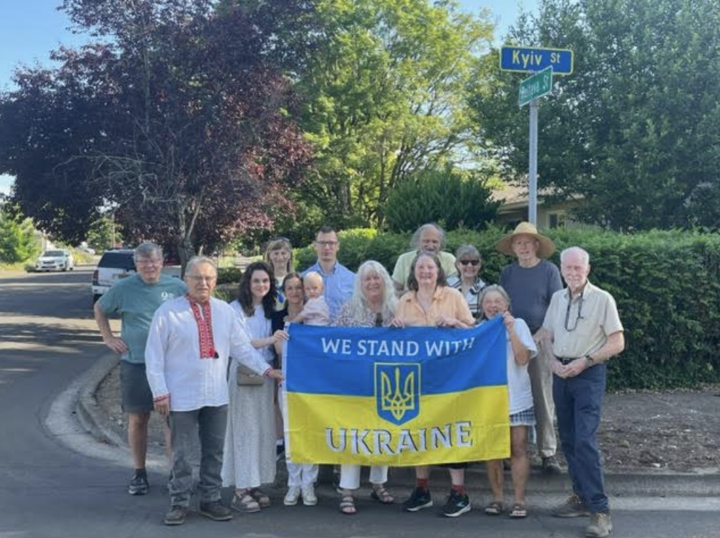
A neighborhood in Springfield, Oregon, on June 10 renamed a local street from “Kiev” to “Kyiv” — a move initiated by members of the Kyiv Independent’s global community.
Photos shared with the Kyiv Independent show the newly installed blue-and-yellow street sign, reflecting both the correct Ukrainian transliteration and the national colors of Ukraine.
The change comes amid a broader effort by Ukraine and its allies worldwide to move away from Russian-derived place names and honor Ukraine’s linguistic and political independence.
“We’re very proud of our city (Springfield, OR, U.S.) for supporting our efforts to make this happen,” one community member told the Kyiv Independent.
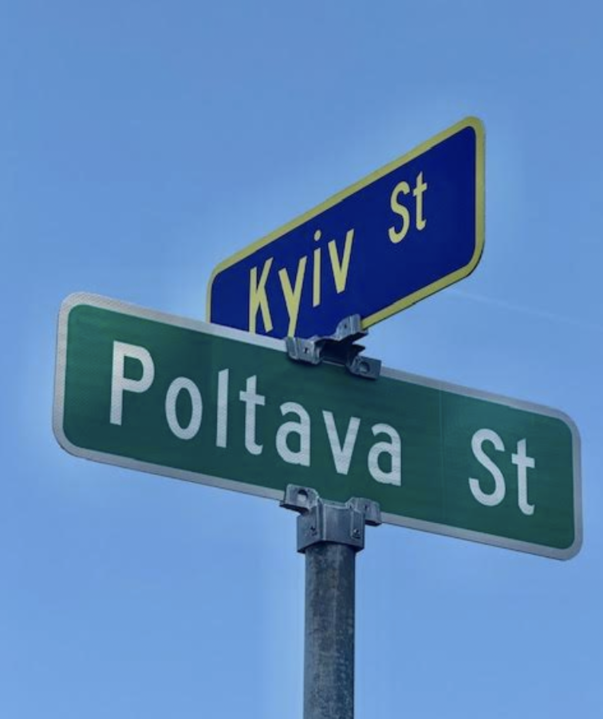
The new street sign in a neighborhood of Springfield, Oregon, U.S. (Photo provided by Kyiv Independent community members) The spelling “Kiev,” pronounced “kee-yev,” is the Russian version of Ukraine’s capital. “Kyiv” (pronounced “keev”) is the correct Ukrainian form, based on the native pronunciation and Latin transliteration.
For decades, global usage favored Russian-based spellings, a legacy of the Soviet Union’s dominance and the widespread misconception that Ukrainian cities and culture were merely extensions of Russia. Even after Ukraine declared independence in 1991, much of the international community continued using names like Kiev, Lvov, and Odessa — all Russified versions.
That began to change after Russia’s 2014 annexation of Crimea and its war in eastern Ukraine. The full-scale invasion in 2022 accelerated the shift, prompting governments, media outlets, and advocacy groups to adopt Ukrainian transliterations such as Kyiv, Lviv, and Odesa.

A city worker installs a new street sign in Springfield, Oregon, U.S., officially changing the spelling from “Kiev” to “Kyiv.” (Photo provided by Kyiv Independent community members) Ukraine’s Foreign Ministry has promoted the change through campaigns like #KyivNotKiev, arguing that the use of correct names respects Ukraine’s sovereignty and resists Russian imperial narratives.
Russian leaders, including President Vladimir Putin, have long emphasized historical ties to Kyiv in their justification for expansionist policies. Renaming streets and using correct spellings is one way communities abroad are pushing back.
Kyiv, not Kiev — How Ukrainians reclaimed their capital’s nameEnglish speakers the world over long referred to Ukraine’s capital as Kiev, not realizing they were using the Russian name for the city.The Kyiv IndependentAnna Belokur

-
Poland detains citizen suspected of spying for Russia
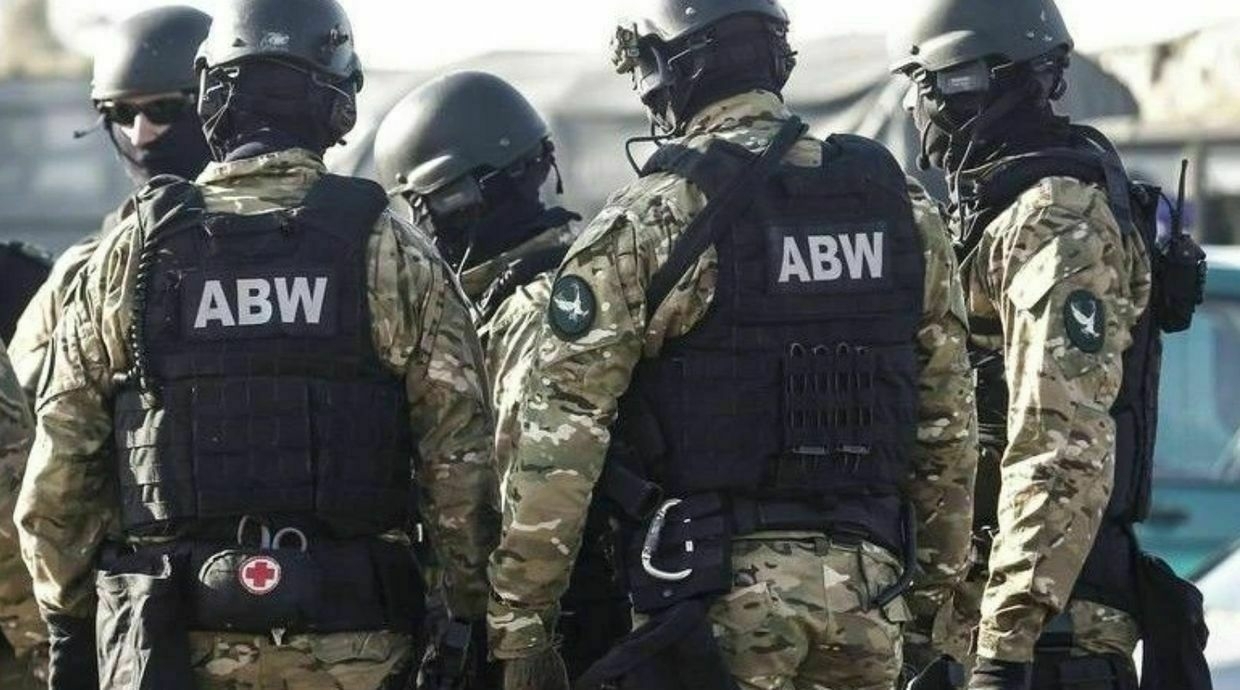
A Polish citizen has been arrested on suspicion of spying for Russia, the Polish Prosecutor’s Office announced on June 11.
According to prosecutors, 28-year-old Wiktor Z. was detained on June 4 by Poland’s Internal Security Agency (ABW) on charges of gathering and passing sensitive information to Russia’s intelligence services. The arrest followed searches of several properties in the Kuyavian-Pomeranian region in northern Poland, authorities said.
Warsaw has intensified its crackdown on Russian intelligence activity following a number of sabotage attacks allegedly directed by Moscow. Several suspected spy networks, allegedly run by Minsk and Moscow, have been uncovered in Poland over the past years.
Prosecutors said Wiktor Z. is suspected of offering to cooperate with Russian intelligence and engaging in espionage between February 2024 and April 2025 in the city of Bydgoszcz and abroad. He allegedly collected data about infrastructure critical to Poland’s defense, the disclosure of which could pose a serious threat to national security.
The suspect acted “out of ideological and pro-Russian convictions,” the Prosecutor’s Office said in a statement. Wiktor Z. has been placed in pretrial detention for three months. If convicted, he faces a minimum of eight years in prison or up to a life sentence.
In May, Polish Foreign Minister Radoslaw Sikorski announced the closure of the Russian consulate in Krakow after accusing Russian intelligence of orchestrating a 2024 arson attack that destroyed the Marywilska shopping center in Warsaw.
Polish officials, including Prime Minister Donald Tusk and Justice Minister Adam Bodnar, have blamed the Kremlin for directing the sabotage, citing detailed intelligence. Multiple individuals have been arrested in connection with the fire, which burned down a complex housing over 1,400 stores.
Authorities in Lithuania have also linked Russia’s intelligence services to similar sabotage incidents, including an arson attack on an IKEA warehouse in Vilnius, causing over half a million euros in damages. Polish and Lithuanian officials are reportedly cooperating on the investigations.
Russia has denied involvement and condemned Poland’s move to shut down its diplomatic post, warning of retaliation.
Western officials have warned of a growing Russian sabotage campaign across Europe targeting states that support Ukraine amid Moscow’s ongoing invasion.
From spy rings to arson — Russia’s sabotage across Europe continues unpunishedAlongside Russia launching its full-scale invasion of Ukraine, Moscow has also ramped up its hybrid attacks across Europe. In 2024 alone, Russia could be behind around 100 “suspicious incidents” in Europe, Czech Foreign Minister Jan Lipavsky claimed. Last month, the Dutch intelligence said that Moscow keeps stepping up its attacksThe Kyiv IndependentKateryna Denisova
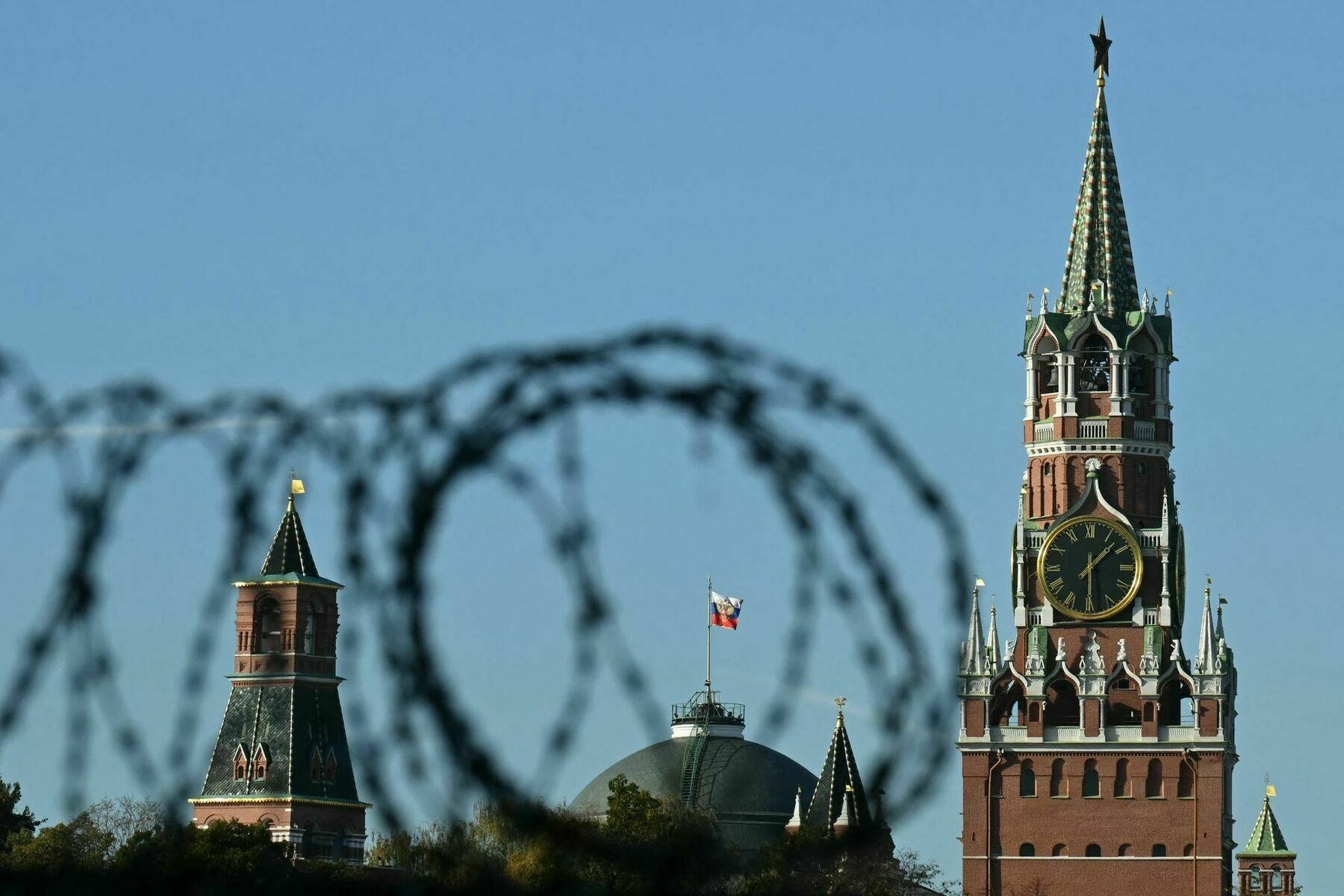
-
Ukraine repatriates bodies of 1,212 fallen soldiers
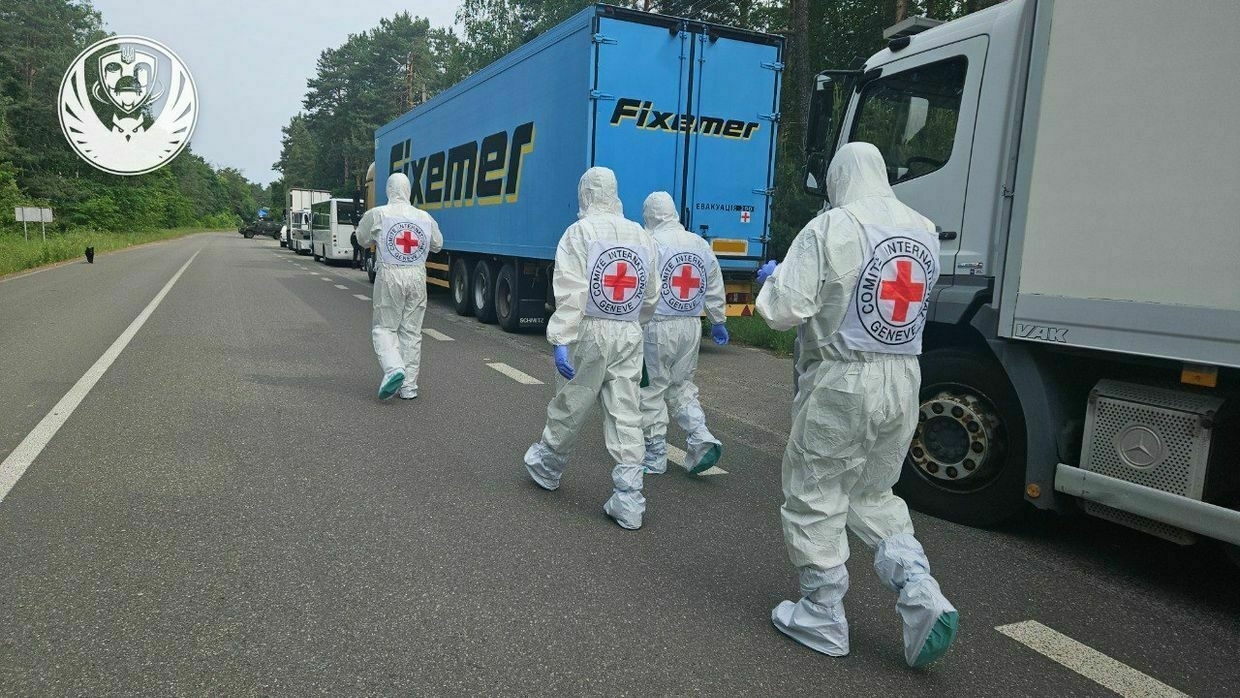
Ukraine has brought back the bodies of 1,212 fallen service members, the Ukrainian Coordination Headquarters for the Treatment of Prisoners of War (POW) said on June 11.The announcement follows Russian-Ukrainian Istanbul talks on June 2, which focused on exchanges of POWs and fallen soldiers.
The repatriation was carried out through a coordinated effort involving Ukraine’s Security Service, the Armed Forces, the Interior Ministry, the Ombudsman’s Office, the State Emergency Service, and other national security and defense institutions. The International Committee of the Red Cross also supported the operation.
The remains of soldiers were returned from multiple front-line regions, including Kharkiv, Donetsk, Luhansk, Zaporizhzhia, Kherson, and Sumy oblasts.
Officials emphasized that investigative and forensic teams from the Interior Ministry and the Health Ministry are working to identify the bodies in the shortest possible time.
At the Istanbul meeting on June 2, Russian and Ukrainian delegations agreed on a new exchange of POWs but failed to reach a ceasefire agreement.
The Turkey-hosted talks were the second round since mid-May and resulted in an agreement to exchange severely wounded and young prisoners, with President Volodymyr Zelensky saying up to 1,200 individuals could be returned on each side. Russia also pledged to transfer up to 6,000 bodies of Ukrainian soldiers.
Following the Istanbul talks, Ukraine and Russia have already conducted two prisoner exchanges on June 9 and 10. While exact figures were not immediately disclosed, Ukraine confirmed the return of severely wounded and chronically ill prisoners, including those captured during the 2022 siege of Mariupol and held for more than three years.
In Istanbul, Ukraine also submitted a peace proposal that called for a full ceasefire, an “all-for-all” POW exchange, the return of abducted children, and the use of frozen Russian assets to rebuild Ukraine. Russia has yet to formally respond.
Ukraine, Russia conduct second prisoner swap under Istanbul deal“All of them require immediate medical attention,” President Volodymyr Zelensky said.The Kyiv IndependentTim Zadorozhnyy

-
FAKE: After the Spiderweb operation, desertion cases in the AFU increased — ISW
Verification within Meta’s Third-Party Fact-Checking Program
A video allegedly created by the Institute for the Study of War (ISW) is being circulated online. It claims that after the Ukrainian Security Service’s Spiderweb operation, cases of desertion in the Armed Forces of Ukraine (AFU) increased. Expert Bill Kristol allegedly explained this phenomenon as an “emotional exhaustion point”, when aggressive actions against the enemy do not boost morale but have the opposite effect.
This is fake. ISW did not publish such a video; it does not match the style and format of the organization’s official materials. Bill Kristol’s quoted statement was fabricated.
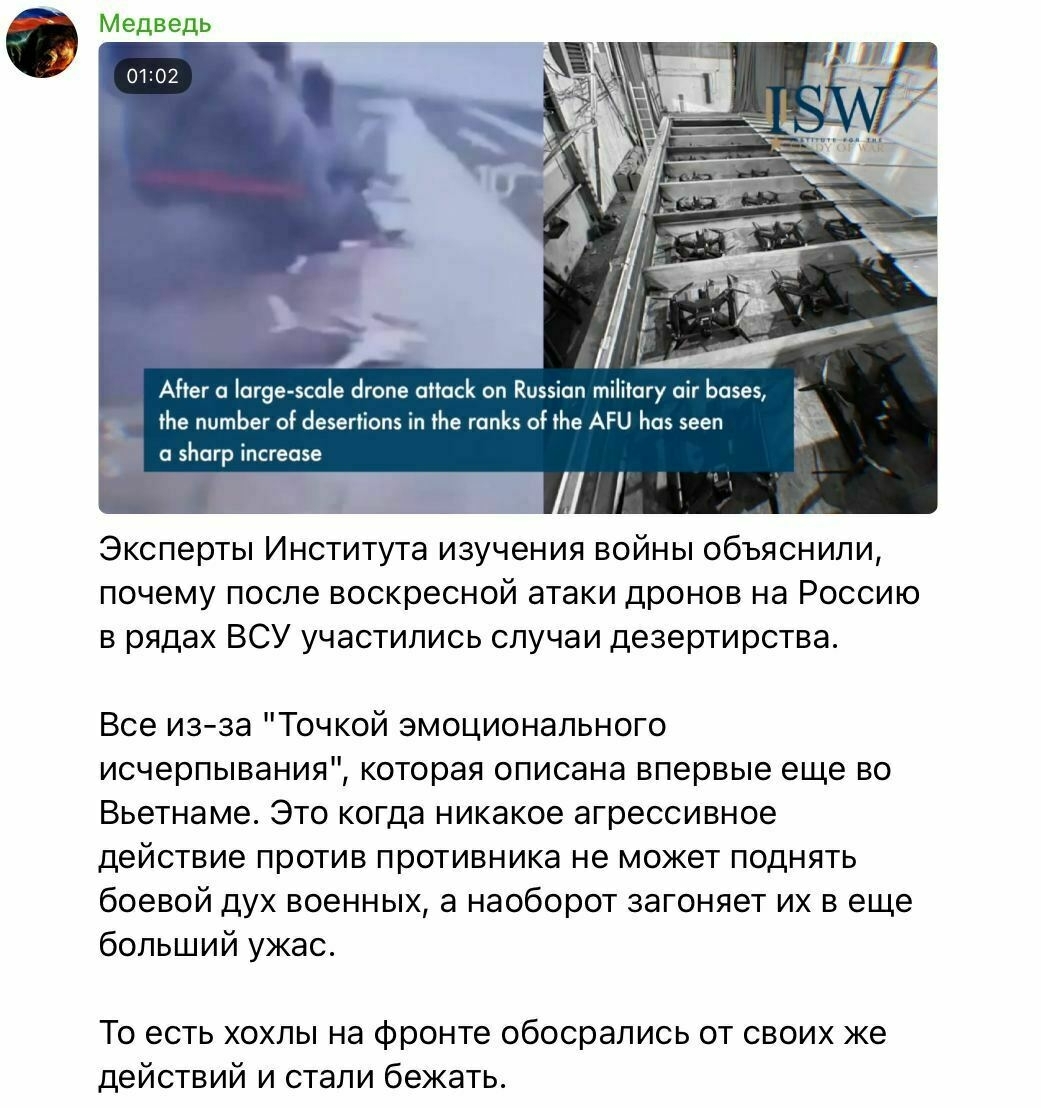
Screenshot of the post
On June 1, 2025, the Security Service of Ukraine (SSU) conducted the Spiderweb operation, using FPV drones to target strategic aviation at four Russian airfields. According to the SSU and the General Staff of the AFU, Russia’s losses amounted to 41 aircraft. Independent OSINT analysts have confirmed 22–23 destroyed aircraft so far.
We checked ISW’s website and social media and did not find such a video. Moreover, its design differs from genuine reports: ISW typically does not produce videos without speakers or voiceovers accompanying visuals. Also, in recent ISW videos, the analytical center’s logo is not placed in the top right corner.

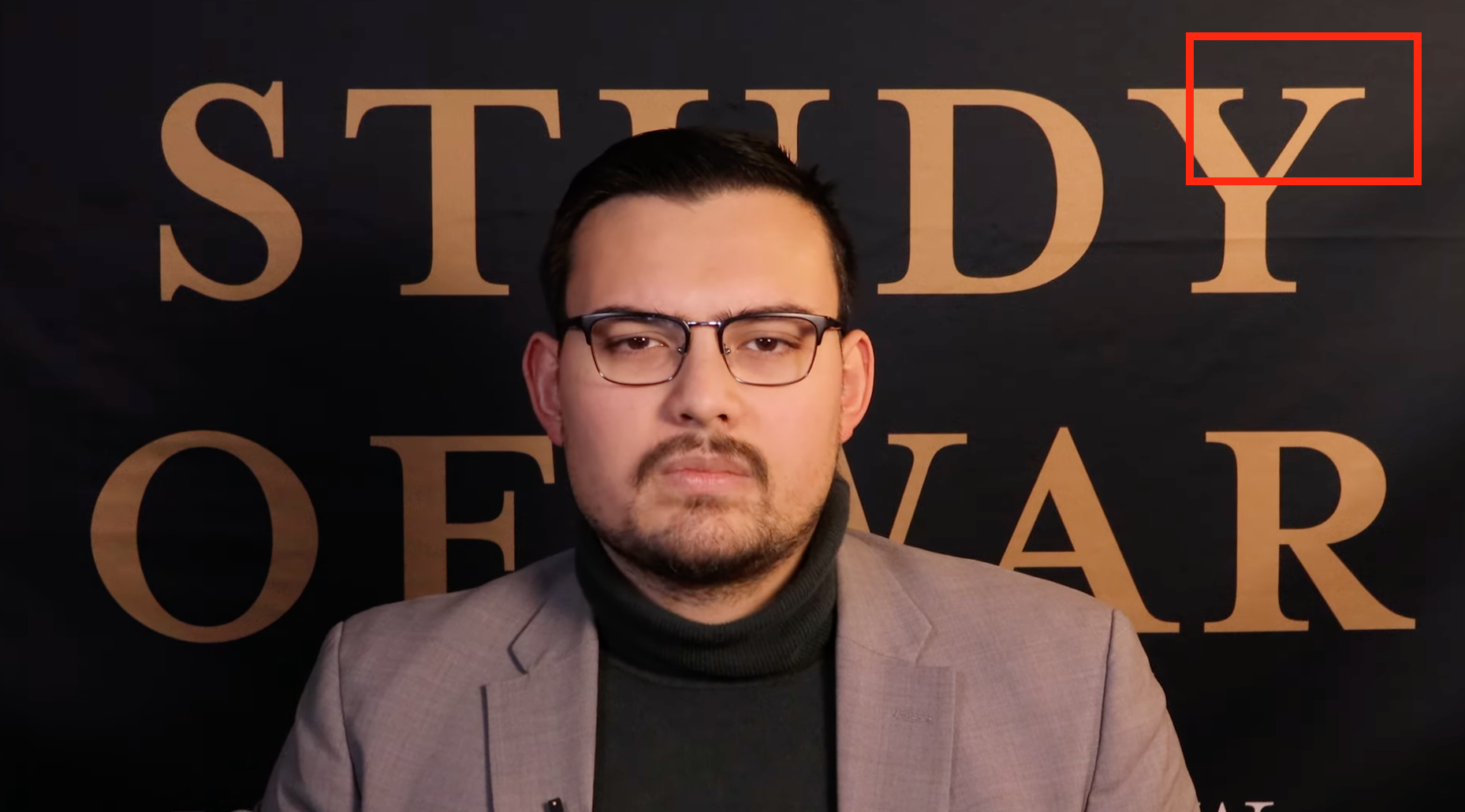
Furthermore, at the end of genuine ISW videos, a screen appears with the ISW logo without the center’s full name, the caption “Donate Today”, and a link to the website using uppercase and lowercase letters. The fake video, however, added the center’s full name to the logo, links to social media, decorative lines, and displayed the website address entirely in lowercase.


The video claims that the comment about increased desertion after the Spiderweb operation was given by “ISW expert” Bill Kristol. Kristol is a well-known political commentator and member of ISW’s board of directors, but he is not an ISW analyst.
On his social media page on X, he states that he is the director of Defending Democracy Together, co-editor of The Bulwark, and host of his interview project. Despite his daily activity on the page, his posts have no direct mentions of the Spiderweb operation. Instead, on June 1, the day of the operation, he posted a quote by Winston Churchill about Finland’s heroism, adding: “Brave Ukraine deserves a tribute like that Churchill paid to Finland in January, 1940…”
At the time of writing, the Office of the Prosecutor General website, where the number of opened criminal cases is usually published, including for “desertion” and “unauthorized abandonment of a military unit or place of service”, does not contain data for June. The most recent published information covers January to May 2025.
We have previously debunked multiple fakes distributed under the ISW logo, including claims that desertion in the AFU reached record levels in March 2025 or that the Kursk operation was the most disastrous in the past 200 years.
-
Serbia's president travels to Ukraine for his first-ever official visit
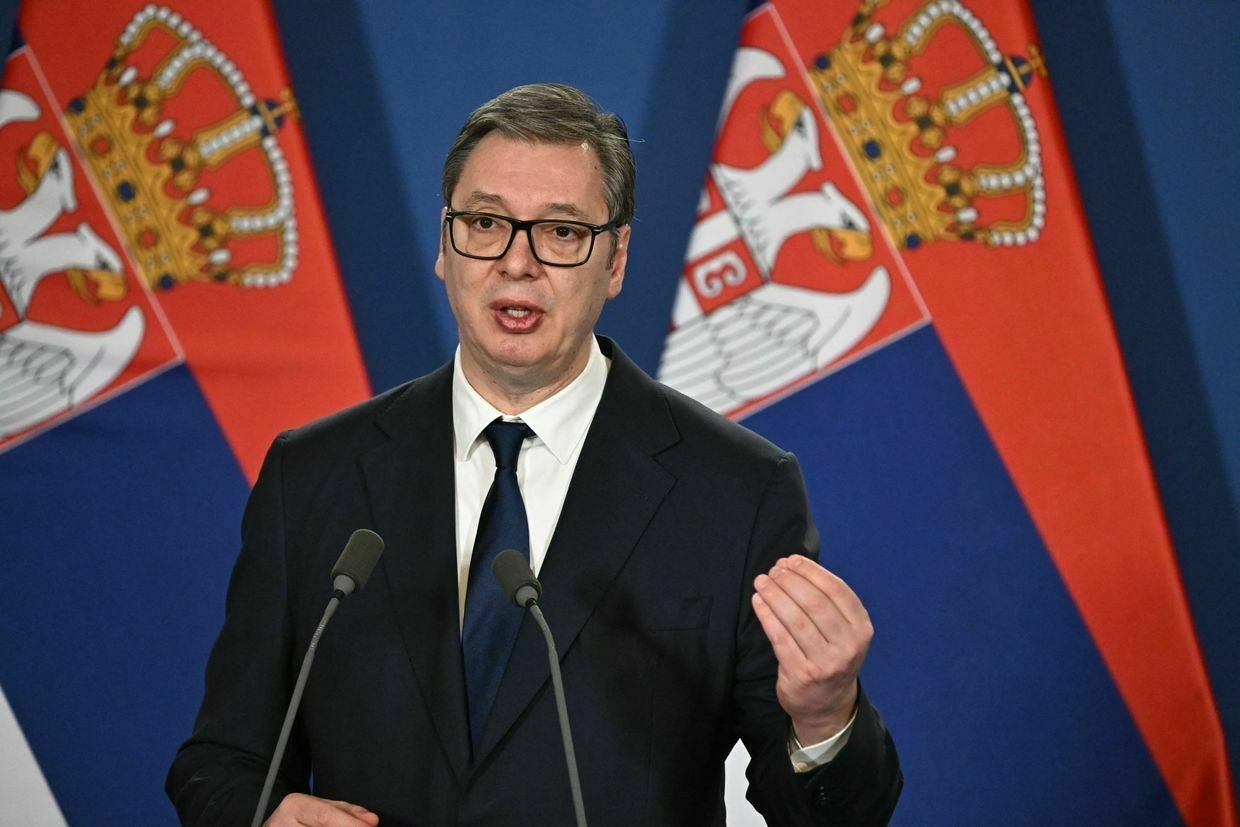
Editor’s note: The story is being updated.
Serbian President Aleksandar Vucic will visit Ukraine on June 11 to take part in the Ukraine-Southeast Europe Summit in Odesa, Serbia’s Presidential Office announced.
The one-day trip will mark the Moscow-friendly Serbian leader’s first official visit to Ukraine.
Top representatives of 12 southeastern European countries are expected to attend the meeting at the Ukrainian Black Sea coast city.
Belgrade has positioned itself as neutral in the Russia-Ukraine war, striving to balance its position as an EU candidate with its long-standing relationship with Moscow.
Vucic, Serbia’s populist president since 2017, was one of the few European leaders who attended the Moscow Victory Day celebrations on May 9, drawing rebuke from the EU.
The traditionally warm Russian-Serbian ties were strained recently after Russia’s intelligence accused Serbian defense companies of supplying arms to Ukraine via intermediaries. Vucic has denied the accusations.
‘We only work for Serbia’ — Vucic denies Moscow’s claims of Serbian companies supplying ammunition to Ukraine“We have formed a working group, together with Russian partners, to establish the facts… we work only for Serbia,” Serbian President Aleksandar Vucic said.The Kyiv IndependentMartin Fornusek
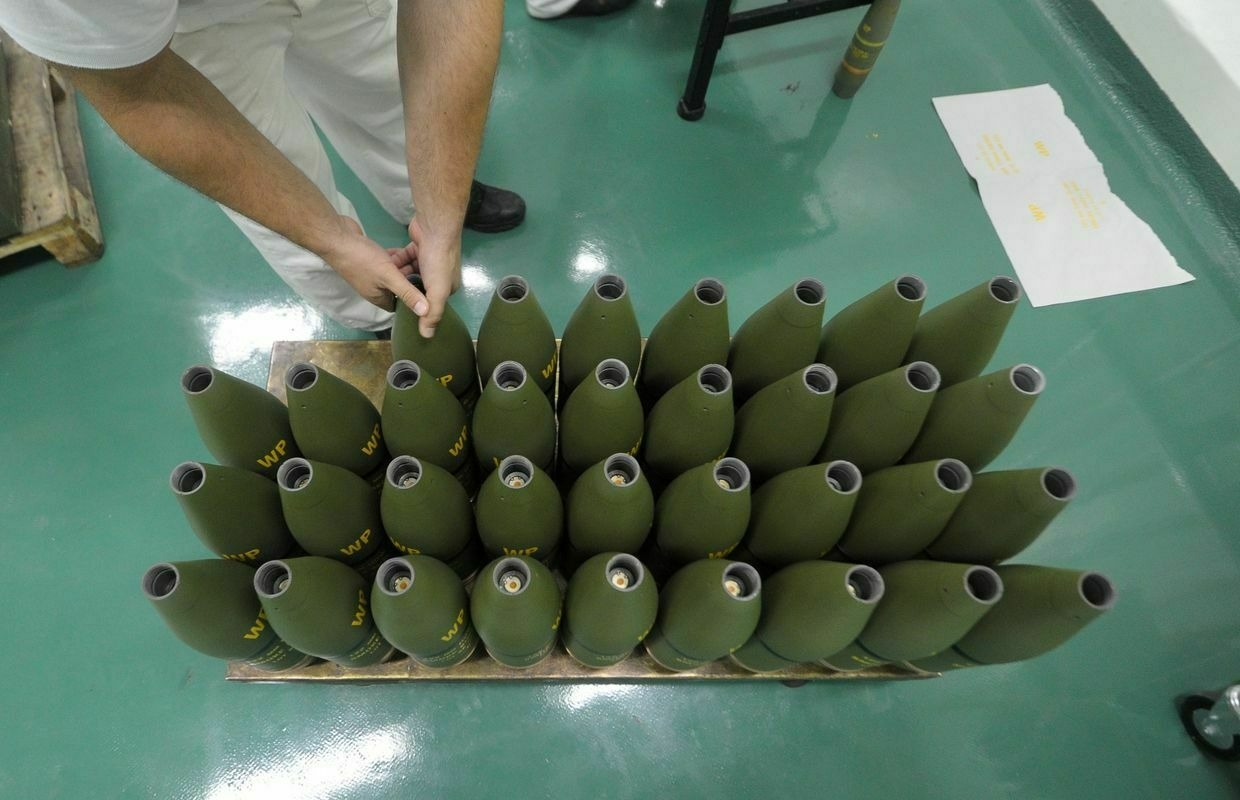
-
Ukraine's SBU releases fresh video of Operation Spiderweb, teases 'new surprises'
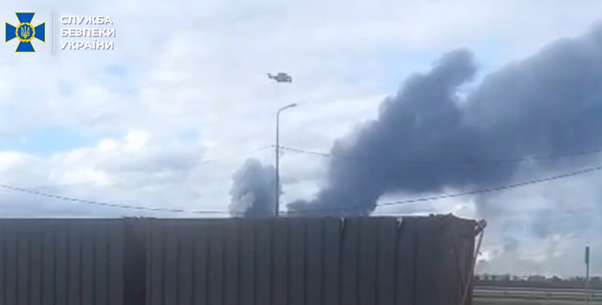
The Security Service of Ukraine (SBU) released on June 11 a new video detailing the sequence of its mass drone strike against Russia’s strategic aviation earlier this month.
The Operation Spiderweb, carried out on June 1, involved 117 drones that were hidden in trucks across Russia and deployed against four air bases, some thousands of kilometers from the Ukrainian border.
The operation damaged 41 aircraft, including Tu-95, Tu-22M3, and Tu-160 bombers, rare A-50 spy planes, and An-12 and Il-78 transport aircraft, causing damage of over $7 billion, the SBU said.
Trucks, seen in the footage driving in an undisclosed location, first transported first-person-view (FPV) drones and then wooden cabins to Russia, the SBU said. Already on Russian territory, the vehicles were loaded with cabins, which, in turn, carried the drones.
The preparations were taking place in the Russian city of Chelyabinsk, not far from a Federal Security Service (FSB) office, according to the SBU.
0:00/A video detailing Ukraine’s Operation Spiderweb on June 1, 2025. (SBU) The loaded trucks then drove to multiple locations in the cities of Ivanovo, Ryazan, and in the Murmansk, Irkutsk, and Amur oblasts. The cabins opened remotely at the time of the attack, allowing the drones to strike Russian planes at the Belaya, Olenya, Dyagilevo, and Ivanovo air bases.
The operation was also meant to strike at the Russian air base in Ukrainka in Amur Oblast, but this part of the attack failed.
SBU chief Vasyl Maliuk, who personally oversaw the operation, stressed that Ukrainian drones targeted “absolutely legitimate targets – military airfields and aircraft that attack our peaceful cities."
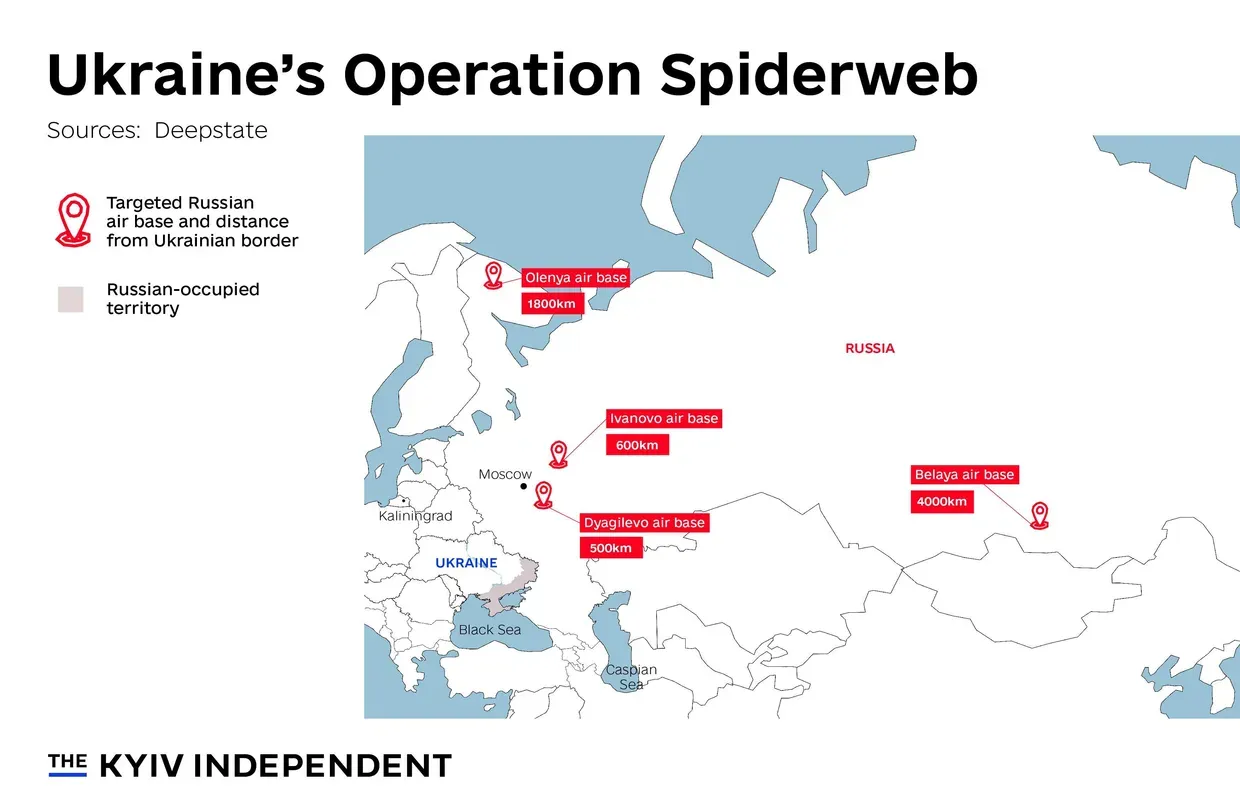
Ukraine’s Operation Spiderweb. (Nizar al-Rifai/The Kyiv Independent) “The SBU is hitting and will hit (Russia) where it considers itself unreachable!” Maliuk said in a statement.
“We are working on new surprises, no less painful than the Operation Spiderweb."
The attack was lauded by Ukrainian leaders and Western partners, with NATO Admiral Pierre Vandier calling it a reinvention of “the Trojan Horse” method with “technical and industrial creativity."
Various satellite imagery released after the attack showed around a dozen destroyed planes. NATO estimates that between 10 and 13 Russian planes were completely destroyed, and more were damaged.
In turn, President Volodymyr Zelensky claimed that roughly half of the 41 targeted planes have been damaged beyond repair. Russia acknowledged damage to its aircraft but claimed all of them will be “restored."
-
Ukrainians among foreign nationals in US targeted for transfer to Guantanamo, WP reports

The Trump administration is preparing to transfer thousands of undocumented foreign nationals, including Ukrainian citizens, to the U.S. military detention facility at Guantanamo Bay in Cuba, the Washington Post reported on June 10, citing undisclosed U.S. official sources.
The infamous prison facility was established by the Bush administration in 2002 to hold suspected terrorists amid the War on Terror. Its operations attracted broad criticism for reports of torture, abuse, and for the facility’s position outside of normal legal frameworks.
The detainees reportedly include individuals from countries such as the United Kingdom, France, Germany, and Ukraine. The move is part of a broader plan to free up capacity at overcrowded domestic facilities.
U.S. officials told the Washington Post that there were no plans to notify the governments of these citizens before their transfer to the facility.
Medical screenings for 9,000 individuals are reportedly underway to assess whether they are physically fit for transfer. Internal documents reviewed by the Washington Post suggest the facility is currently underutilized and could accommodate more detainees.
The Homeland Security Department and the White House declined to comment for the Washington Post on the reporting, which is based on information from multiple anonymous officials and internal documents. A defense official maintained that current operations at the base remain “unchanged” and refused to speculate on “future missions."
Some home countries of the targeted detainees have previously expressed willingness to repatriate their nationals, but have been deemed too slow by U.S. immigration authorities.
The White House has not confirmed the number of Ukrainians affected, and Ukraine’s Foreign Ministry has yet to comment.
The plan to revive Guantanamo as a holding site for mass immigration enforcement is part of President Donald Trump’s broader pledge to ramp up deportations and arrests, with a goal of at least 3,000 arrests daily, according to White House officials.
Previously, the media reported that the Trump administration planned to revoke the temporary legal status of 240,000 Ukrainian refugees who fled Russia’s invasion.
According to a March 6 article by Reuters, the administration aims to cancel refugees' immigration status granted under the Biden-era Uniting for Ukraine program, potentially exposing them to deportation. Although the White House denied the claim, internal Immigration and Customs Enforcement (ICE) documents suggest preparations for fast-tracked removals are underway.
Ukrainian boxer Usyk invites Trump to his home to see Russia’s war firsthand, BBC reports“I advise American President Donald Trump, go to Ukraine and live in my house one week. Only one week … Watch what’s going on every night,” the heavyweight champion said in an interview with BBC Sport.The Kyiv IndependentAbbey Fenbert

-
Russian attacks kill 4, injure 73 across Ukraine over past day
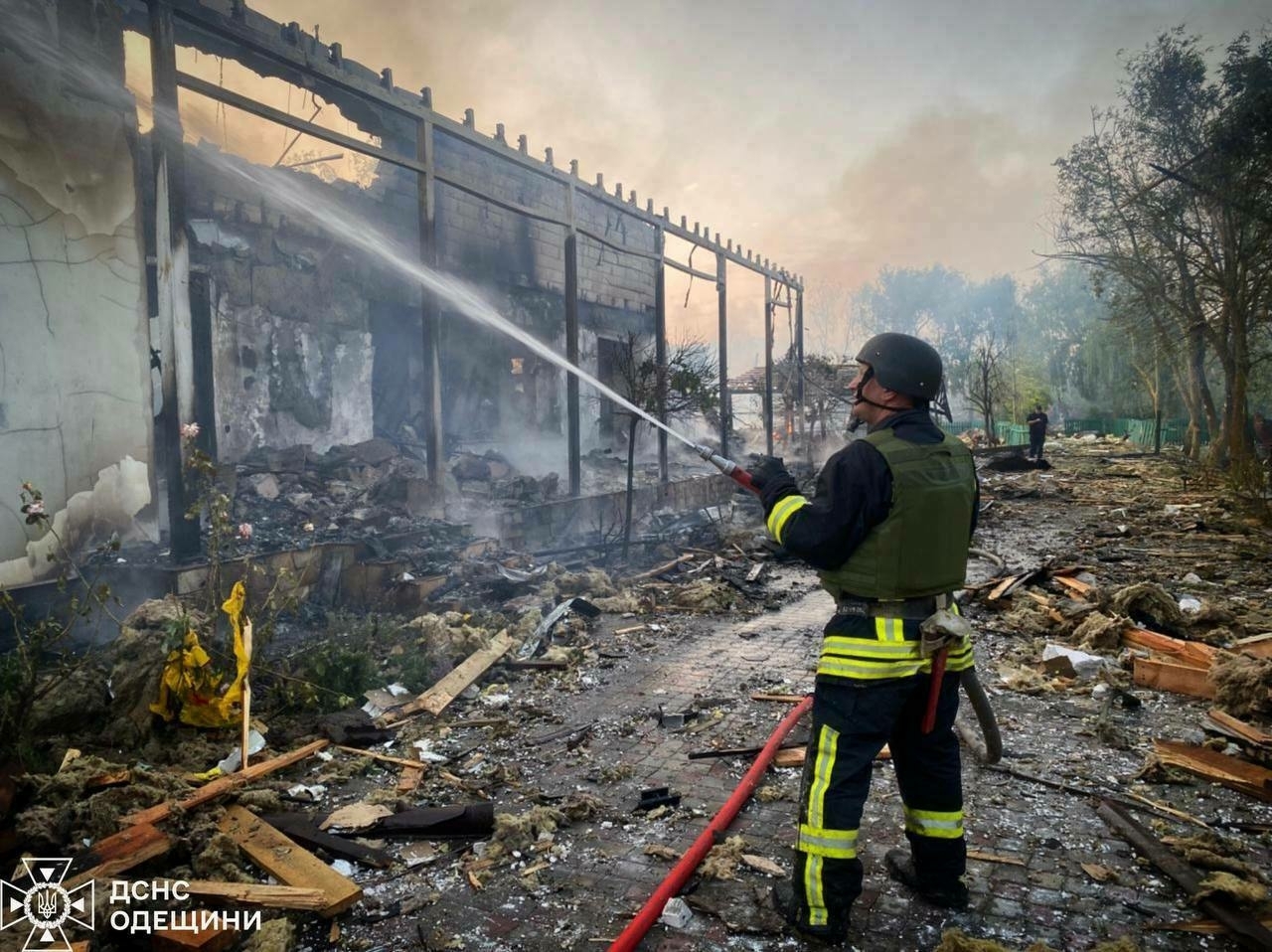
At least four people were killed and 73 injured over the past day as Russian forces launched drone and missile attacks across multiple regions of Ukraine, authorities said on June 11.
Ukraine’s Air Force reported that Russia deployed 85 attack drones, including Shahed-type unmanned aerial vehicles (UAVs) and decoy drones, along with one Iskander-M ballistic missile launched from Russia’s Kursk Oblast.
The main targets were the Kharkiv, Donetsk, and Odesa oblasts. Ukrainian air defenses reportedly shot down 40 drones overnight, while nine drones disappeared from radars or were intercepted by electronic warfare.
In Kharkiv Oblast, three people were killed and 60 injured, including nine children, following drone strikes on residential buildings in Kharkiv city, Governor Oleh Syniehubov said. Five people were injured elsewhere in the region.
In Kherson Oblast, five people were injured in Russian attacks, Governor Oleksandr Prokudin said. A high-rise building and 10 houses were damaged.
In Odesa Oblast, Russian drones struck coastal communities overnight, damaging summer houses, farm buildings, cars, and civilian boats, the State Emergency Service reported. Fires broke out but were reportedly extinguished. No casualties were reported.
In Donetsk Oblast, one civilian was killed in the town of Raiske, and another person was injured, Governor Vadym Filashkin said.
In Zaporizhzhia Oblast, Russian forces carried out 419 attacks on 14 settlements, Governor Ivan Fedorov said. The attack included seven air strikes, 220 drone attacks, and 189 artillery strikes. A civilian vehicle was hit by a drone in Malokaterynivka, injuring two people.
In Dnipropetrovsk Oblast, Russia targeted the Synelnykove and Nikopol districts, Governor Serhii Lysak said. A drone strike sparked a fire at a private enterprise in the Vasylkivska community, destroying a building and farming equipment. In the Nikopol district, artillery and kamikaze drones struck multiple communities, damaging houses and vehicles. No injuries were reported.
In Sumy Oblast, Russian forces launched 14 attacks on border communities, local officials reported. The strikes included mortar and artillery shelling, as well as drone activity. No casualties were reported, but several houses and power lines sustained damage.
Slovak PM threatens to veto 18th sanctions package against Russia over energy concernsSlovak Prime Minister Robert Fico said that he would block additional sanctions unless the EU finds “a real solution to the crisis situation that Slovakia would face following a complete halt in the supply of gas, oil, and nuclear fuel from Russia.”The Kyiv IndependentDmytro Basmat
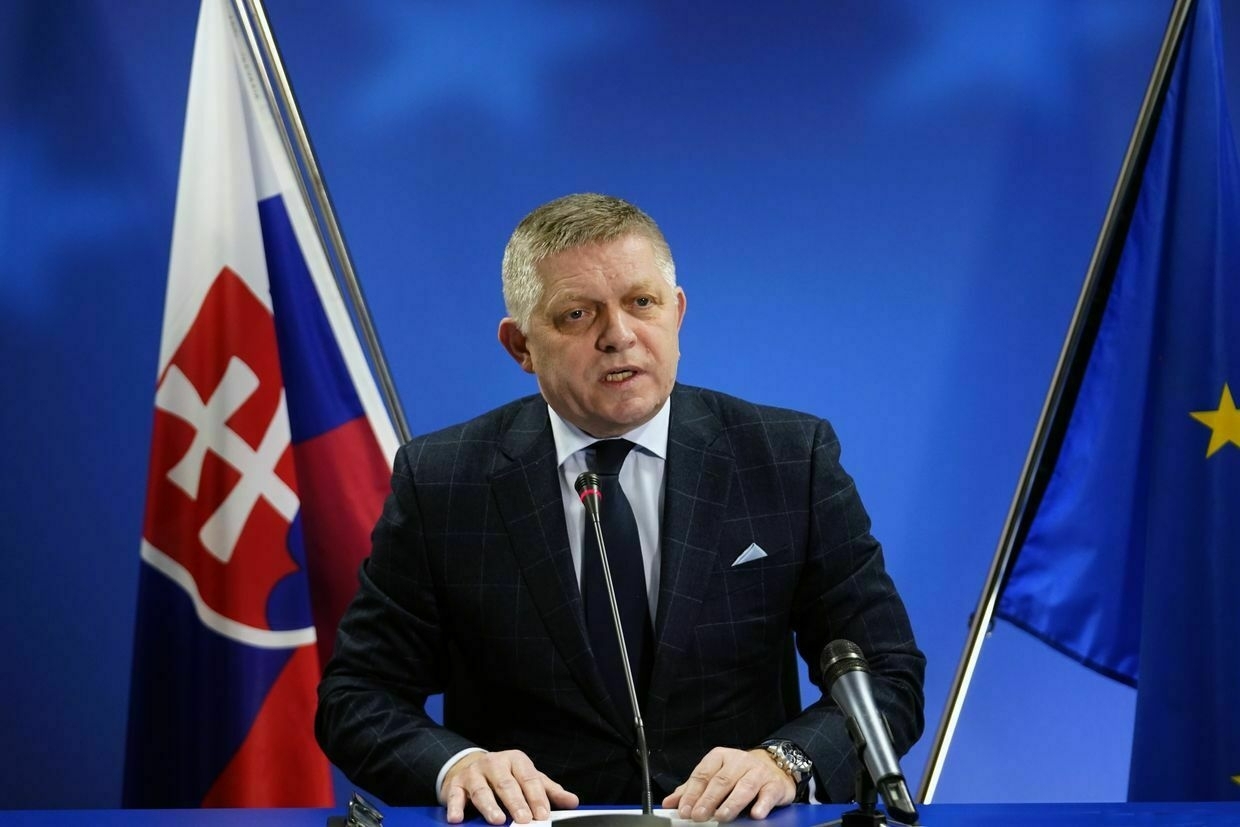
-
US-Russia talks to be held in Moscow 'very soon,' Russian ambassador claims
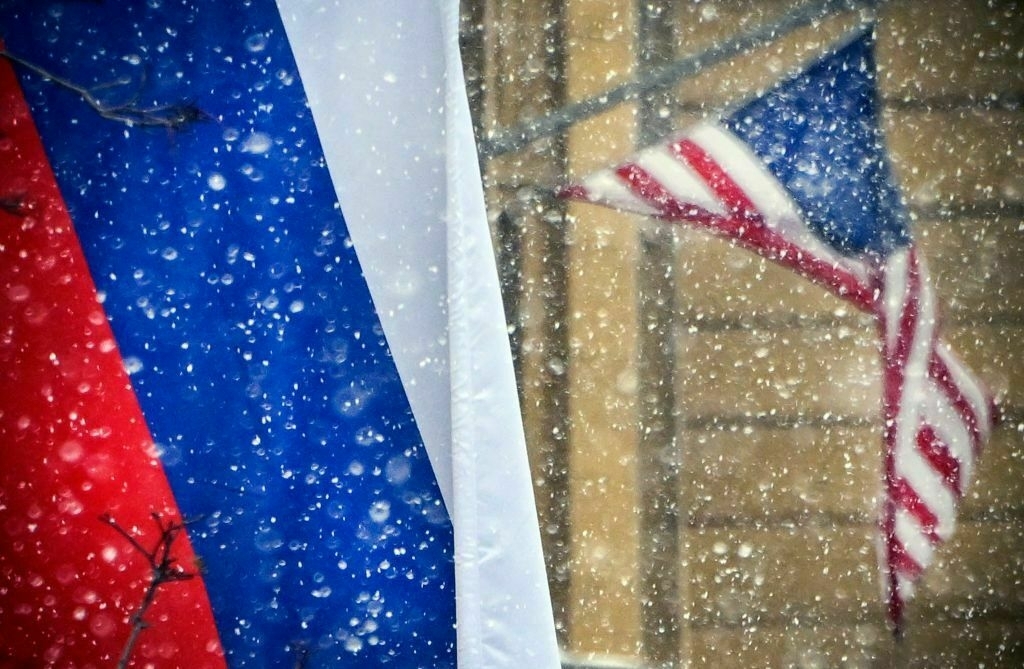
Russian and U.S. delegations will hold talks in Moscow in the near future, Russian Ambassador to the United States Alexander Darchiev said in an interview with state-controlled news agency TASS on June 10.
The meeting would follow a series of previous discussions between the U.S. and Russia that focused on peace efforts in Ukraine and the resumption of bilateral ties.
The first talks since the start of Russia’s full-scale war against Ukraine took place on Feb. 18 in Riyadh, where the sides discussed bilateral relations, a potential presidential meeting, and ending the war.
“I can confirm that the next round of negotiations between the delegations will take place very soon in Moscow,” Darchiev said.
The ambassador noted that during the previous round of talks on April 10 in Istanbul, the two sides agreed to move future consultations to their respective capitals.
The U.S. State Department described the April 10 talks in Istanbul as having a “constructive approach.” The closed-door consultations lasted about six hours and focused on ensuring stable banking services for diplomatic missions. Both delegations exchanged notes on the issue and agreed to continue discussions.
Darchiev also said that Russia is aiming for a model of “non-confrontational coexistence” with the United States and confirmed that the parties have launched negotiations on the return of confiscated Russian diplomatic property.
Other rounds of talks between U.S. and Russia occurred in Istanbul on Feb. 27 and April 10, focusing on diplomatic mission operations and movement of diplomats.
U.S. and Russian delegations also held a 12-hour closed-door session in Riyadh on March 24. The talks centered on a potential ceasefire in the Black Sea and broader military de-escalation.
The diplomatic push continues amid efforts by U.S. President Donald Trump to broker a ceasefire and peace agreement in Ukraine. Trump suggested on June 5 that it may be better to let the conflict continue for now, likening the war to a fight between children that should not be interrupted too quickly.
Kyiv and its allies remain skeptical of Trump’s approach toward peace efforts. President Volodymyr Zelensky has repeatedly called for stronger U.S. action and warned that “America’s silence, and the silence of others around the world, only encourages (Russian President Vladimir) Putin."
A bipartisan sanctions bill, targeting countries that purchase Russian oil and uranium, is awaiting approval in Congress.
Trump quietly pressuring Senate to weaken Russia sanctions, WSJ reportsThe White House reportedly asked Sen. Graham to insert waivers into the bill allowing Trump to choose which entities get sanctioned and changing the word “shall” to “may.”The Kyiv IndependentAbbey Fenbert
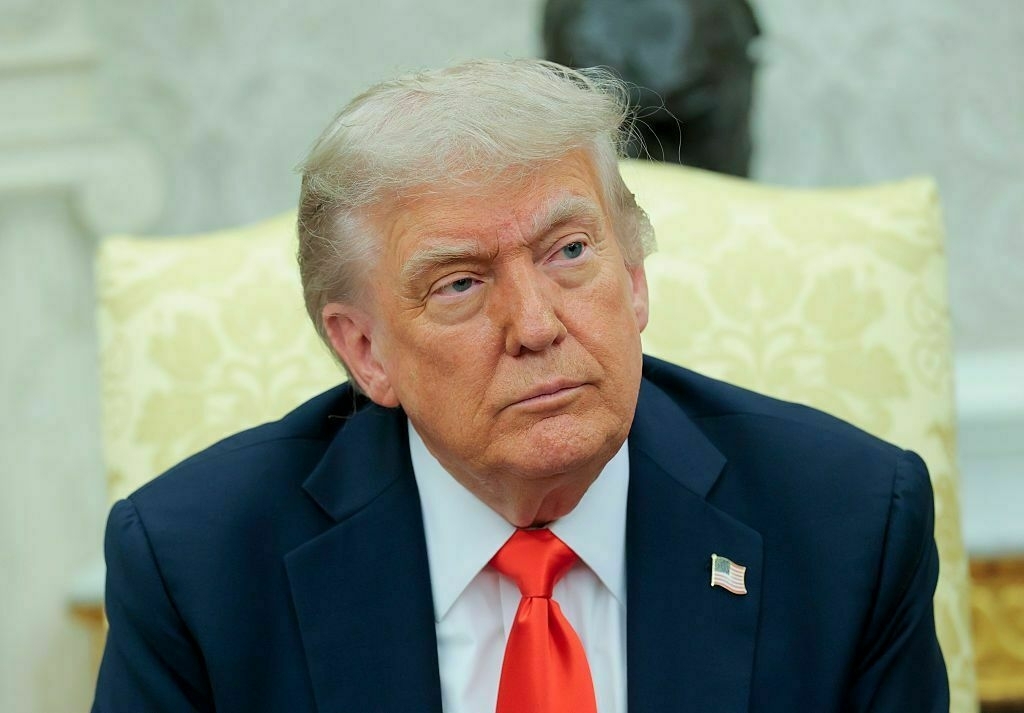
-
General Staff: Russia has lost 999,200 troops in Ukraine since Feb. 24, 2022
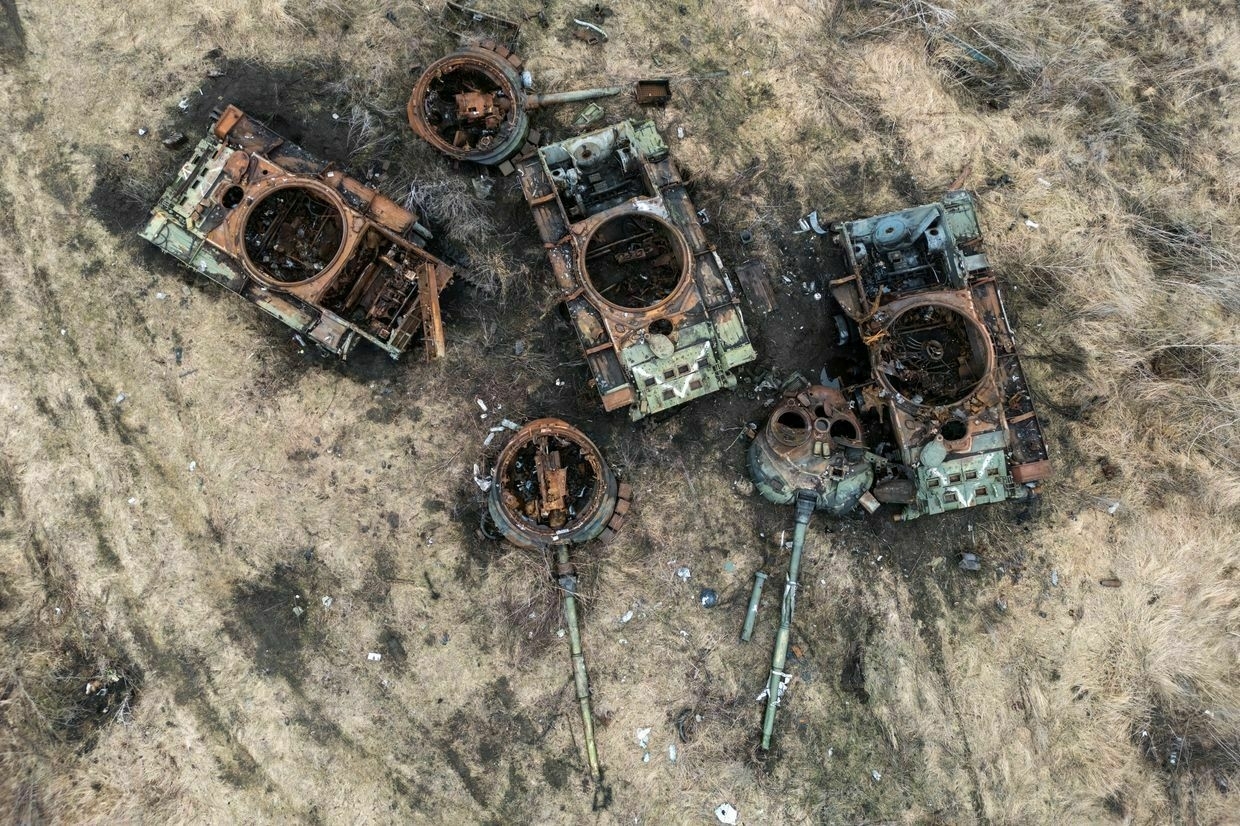
Russia has lost 999,200 troops in Ukraine since the beginning of its full-scale invasion on Feb. 24, 2022, the General Staff of Ukraine’s Armed Forces reported on June 11.
The number includes 1,120 casualties that Russian forces suffered just over the past day.
According to the report, Russia has also lost 10,927 tanks, 22,783 armored fighting vehicles, 51,579 vehicles and fuel tanks, 29,016 artillery systems, 1,413 multiple launch rocket systems, 1,183 air defense systems, 416 airplanes, 337 helicopters, 40,297 drones, 3,337 cruise missiles, 28 ships and boats, and one submarine.
US to cut military aid to Ukraine, Hegseth saysThe U.S. will reduce funding allocated for military assistance to Ukraine in its upcoming defense budget, Defense Secretary Pete Hegseth said in a congressional hearing on June 10.The Kyiv IndependentAbbey Fenbert
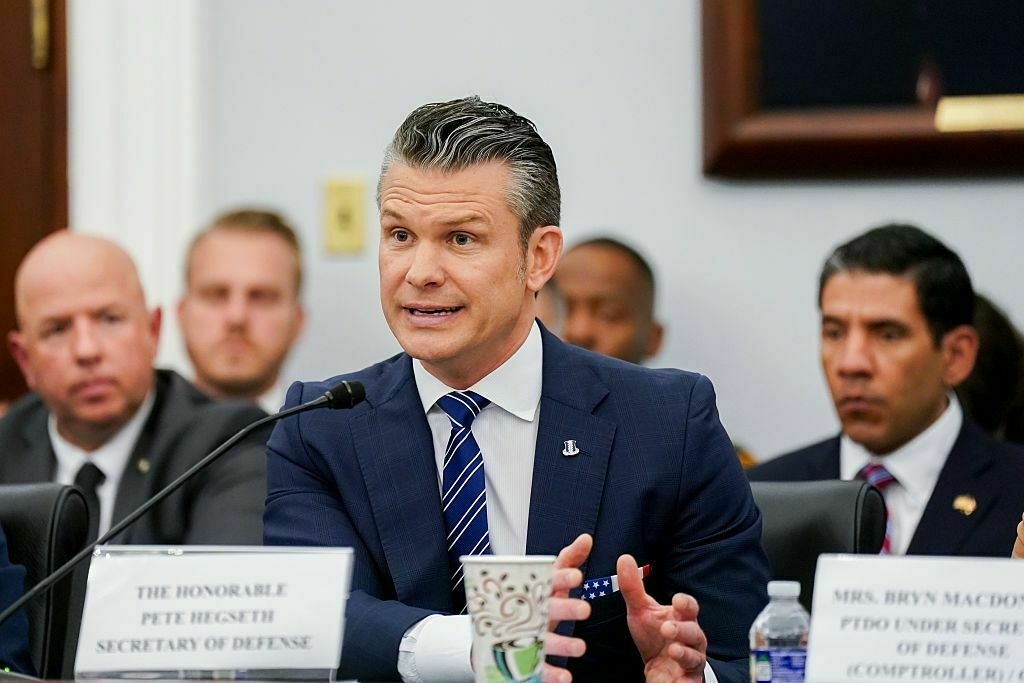
-
Fire, explosions reported at gunpowder plant in Russia's Tambov Oblast amid drone attack
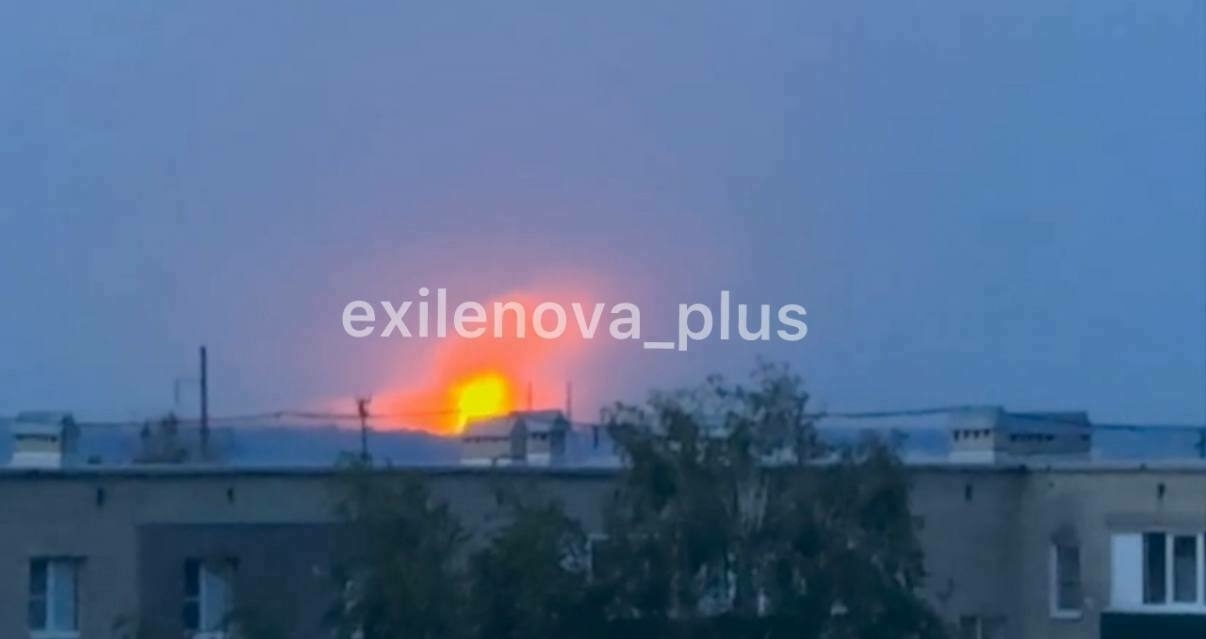
Editor’s note: This is a developing story and is being updated.
A large fire reportedly broke out at a gunpowder plant in the town of Kotovsk in Russia’s Tambov Oblast overnight on June 11, Russian Telegram channels reported.
Residents reported hearing multiple explosions amid a Ukrainian drone attack on the region. Videos posted on social media purportedly show a large fire in the vicinity of the plant.
No information was immediately available as to the extent of damage caused.
Russian state media TASS claimed that a large-scale drone attack on the region was repelled by Russian air defense systems, which resulted in a fire. The outlet did not mention an attack on the plant.
The Kyiv Independent cannot independently verify reports of the attack on the plant. Ukraine’s military has not yet commented on the alleged attack.
0:00/Video of a purported fire at a gunpowder plant in Russia’s Tambov Oblast following a Ukrainian drone atack on June 11, 2025. (ASTRA/Telegram) The gunpowder plant has previously been the target of Ukrainian attack. In July 2024, the facility was struck with a Ukrainian attack drone, a military intelligence source told the Kyiv Independent. The plant was also previously struck in January 2024 and November 2023.
The Tambov gunpowder plant is one of the largest industrial facilities in Russia that manufactures ammunition for the army, including gunpowder for small arms cartridges.
Its production has been reportedly increased by a third since the beginning of Russia’s full-scale invasion of Ukraine. The plant was put on the U.S. sanction list in 2023.
Ukrainian forces regularly conduct drone strikes and sabotage acts on Russian territory, targeting military assets, oil refineries, and industrial facilities.
On the morning of June 10, drones reportedly attacked targets in Russia’s Tatarstan Republic and Leningrad Oblast.
On June 6, drones struck a Russian military plant in nearby Michurinsk, Tambov Oblast.
As peace negotiations stall and Russia refuses the accept a ceasefire, the war has escalated.
Russia intensified aerial assaults on Ukrainian cities in late May, launching some of the heaviest assaults of the full-scale war over three consecutive nights. Less than a week later, Ukraine launched Operation Spiderweb, an audacious mass drone strike that reportedly damaged 41 Russian military planes.
In the days since, Ukraine has continued to target key Russian military assets, launching strikes against missile bases and the Crimean Bridge.
Zelensky calls on West to slash Russian oil price cap in half as strikes on Ukraine escalate“Each of the partners knows what price cap is needed — $30, no higher. Such a price level will mean real pressure on Russia,” President Volodymyr Zelensky said on June 10.The Kyiv IndependentAbbey Fenbert
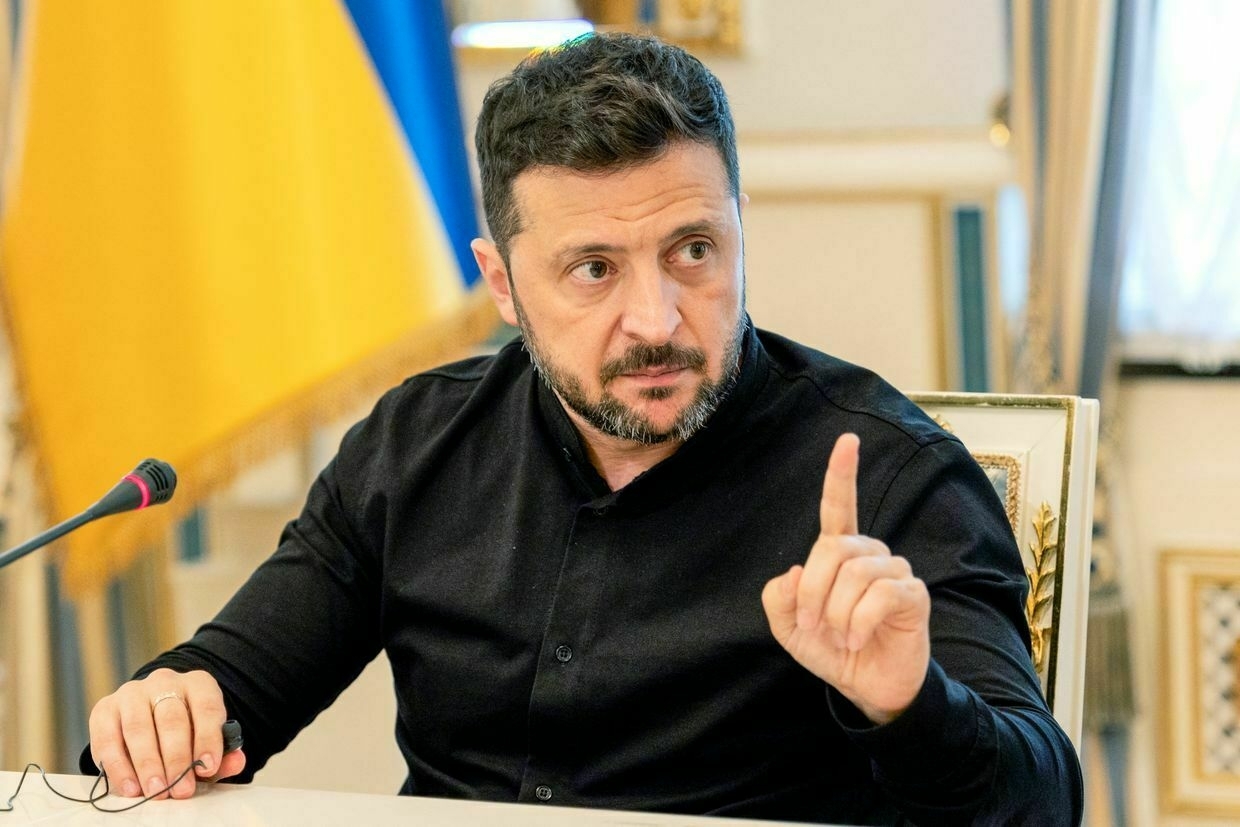
-
Russian jet suspected of violating Finnish airspace, Defense Ministry says
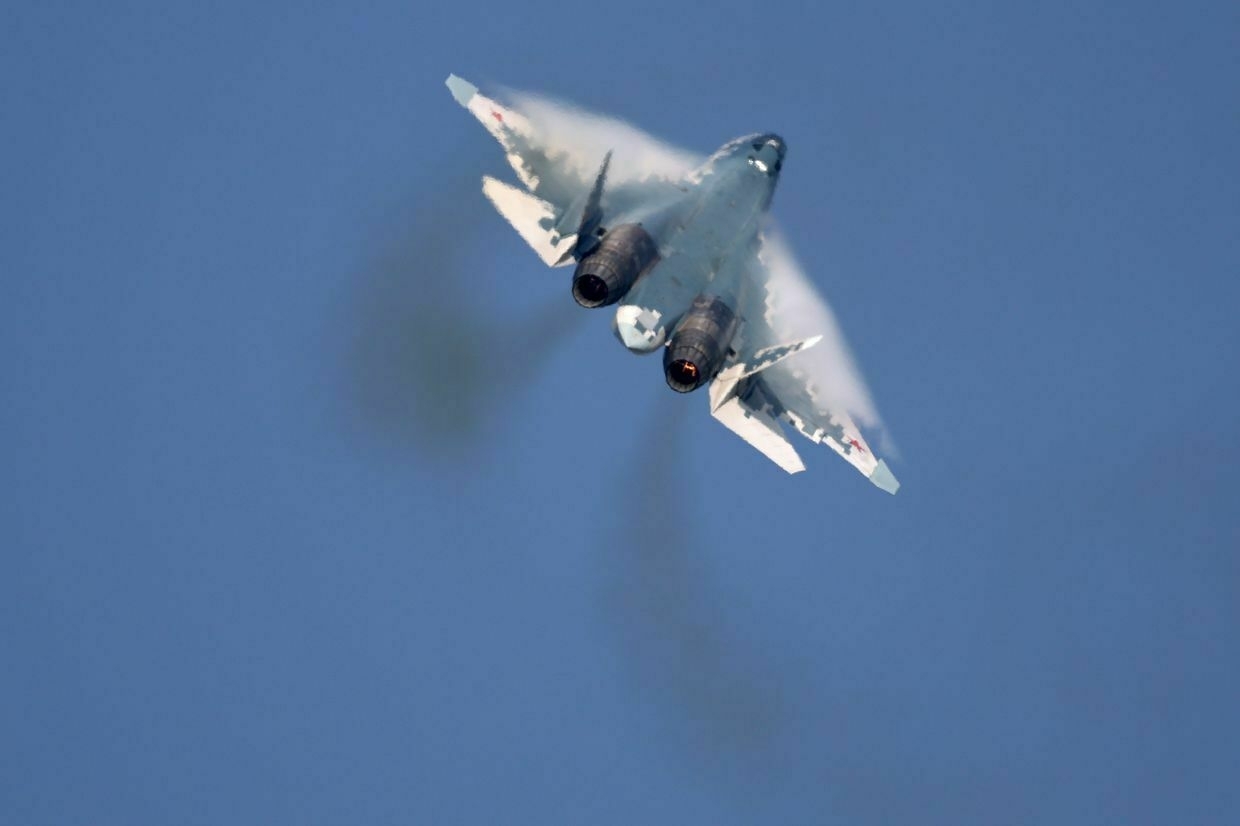
A Russian military aircraft is suspected of violating Finland’s airspace on June 10, the country’s Defense Ministry said in a statement.
“The investigation into the suspect’s airspace breach has been launched immediately,” Finnish Defense Minister Antti Hakkanen said. The Finnish border guard is investigating and will share more information as the probe continues, according to the Finnish Defense Ministry.
The alleged violation occurred near the city of Porvoo, located about 50 km east of Helsinki. The city lies in the country’s far-south, along the Gulf of Finland.
Russia regularly stages provocations on NATO’s eastern flank, which includes Poland, Finland, and the Baltic countries. On May 22, two Russian aircraft violated Finnish airspace, while the day prior Polish fighter jets intercepted a Russian Su-24 bomber in international airspace over the Baltic Sea.
Russian aircraft frequently fly from its exclave, Kaliningrad. The jets often disable their transponders, fail to file flight plans, and do not establish contact with regional air traffic control — a pattern NATO officials describe as high-risk behavior.
Since the start of Russia’s full-scale invasion, NATO officials have increasingly warned Moscow could attack the alliance’s members in the coming years. In anticipation of increased hostilities, Finland has said it expects a Russian military build-up on its borders after the war in Ukraine ends.
On May 19, the New York Times published satellite images which seem to indicate an expansion of military facilities near the Finnish border.
Finland joined NATO in 2023 following the onset of Russia’s full-scale war against Ukraine in February 2022 and shares a 1,300-kilometer (800-mile) border with Russia.
NATO countries in Russia’s vicinity have intensified their preparations for a possible conflict. Poland and the Baltic countries moved to abandon a treaty banning land mines and are strengthening the borders shared with Russia and its ally Belarus while urging higher defense spending across the alliance.
Germany plans expansion of air raid shelters amid growing Russian threats, official says“We must quickly create space for 1 million people,” Ralph Tiesler, the head of the Germany’s Federal Office of Civil Protection and Disaster Assistance told Suddeutsche Zeitung. “Existing structures must be assessed and adapted without delay.”The Kyiv IndependentDmytro Basmat

-
Slovak PM threatens to veto 18th sanctions package against Russia over energy concerns
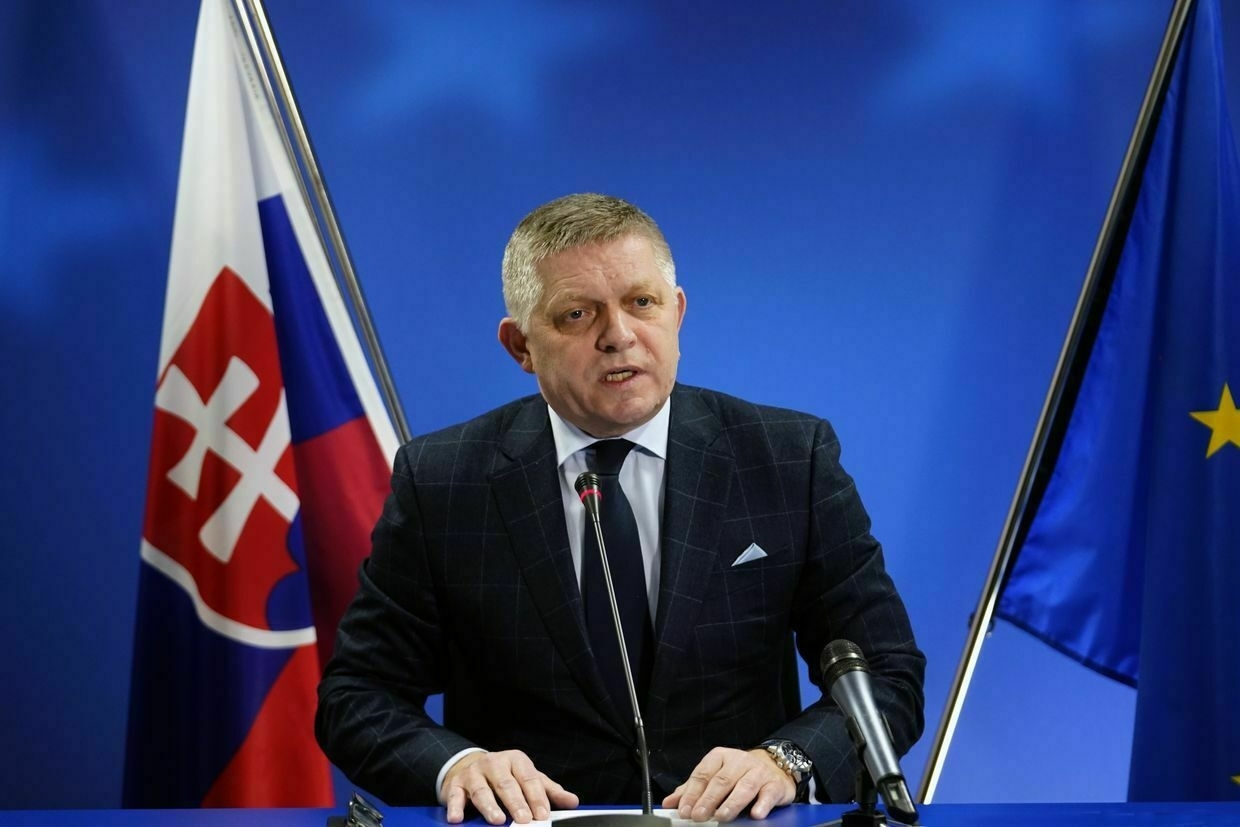
Slovak Prime Minister Robert Fico threatened on June 10 to veto the EU’s upcoming 18th sanctions package against Russia if concerns over Slovakia’s reliance on Russian gas and energy exports were not addressed.
The comments come as European Commission President Ursula von der Leyen announced on June 10 that the 18th package of European Union sanctions against Russia will include additional restrictions on energy, banking, and oil, among other areas.
The EU has proposed for the first time a ban on transactions involving the Nord Stream 1 and Nord Stream 2 pipelines, as well as a reduction in the oil price cap from $60 to $45 per barrel, as one-third of Russia’s government revenue still comes from oil exports, according to von der Leyen.
Fico said on Facebook that he would block additional sanctions unless the bloc finds “a real solution to the crisis situation that Slovakia would face following a complete halt in the supply of gas, oil, and nuclear fuel from Russia."
Historically, Slovakia has been heavily reliant on Russian gas and energy transfer, serving as a key transit hub for Russian exports to Western Europe.
Since taking office in 2023, Fico has also reversed Slovakia’s previous pro-Ukraine policy, ending military aid to Kyiv and questioning the value of EU sanctions on Russia.
EU foreign policy decisions, including sanctions, require unanimous approval by all member states. A Slovak veto could force concessions or delay enforcement in future rounds.
Fico’s comments come as Slovakia’s parliament passed a resolution on June 5 urging the government to oppose any new international sanctions or trade restrictions against Russia, citing alleged negative economic impacts. The non-binding resolution argued that sanctions imposed in response to Russia’s full-scale invasion of Ukraine have driven up energy prices, disrupted supply chains, and harmed Slovak industry.
Fico subsequently vowed on June 8 that he would veto new sanctions if they harm national interests, adding that he would not support any measure that halts Russian fuel imports that are used to power Slovakia’s nuclear power plants.
Unlike Ukraine-skeptic Hungarian Prime Minister Viktor Orban who has repeatedly obstructed and delayed the bloc’s sanctions against Russia and military aid for Ukraine, Slovakia has not previously attempted to block EU sanctions.
On May 6 the EU presented a detailed roadmap to fully sever the bloc’s energy dependence on Russia by 2027. National governments, including Kremlin-friendly Hungary and Slovakia, will be required to submit individual phase-out plans by year’s end.
EU unveils 18th package of sanctions against Russia, targeting energy, banking, oilThe EU has proposed for the first time a ban on transactions involving the Nord Stream 1 and Nord Stream 2 pipelines, as well as a reduction in the oil price cap from $60 to $45 per barrel, among other measures.The Kyiv IndependentKateryna Hodunova
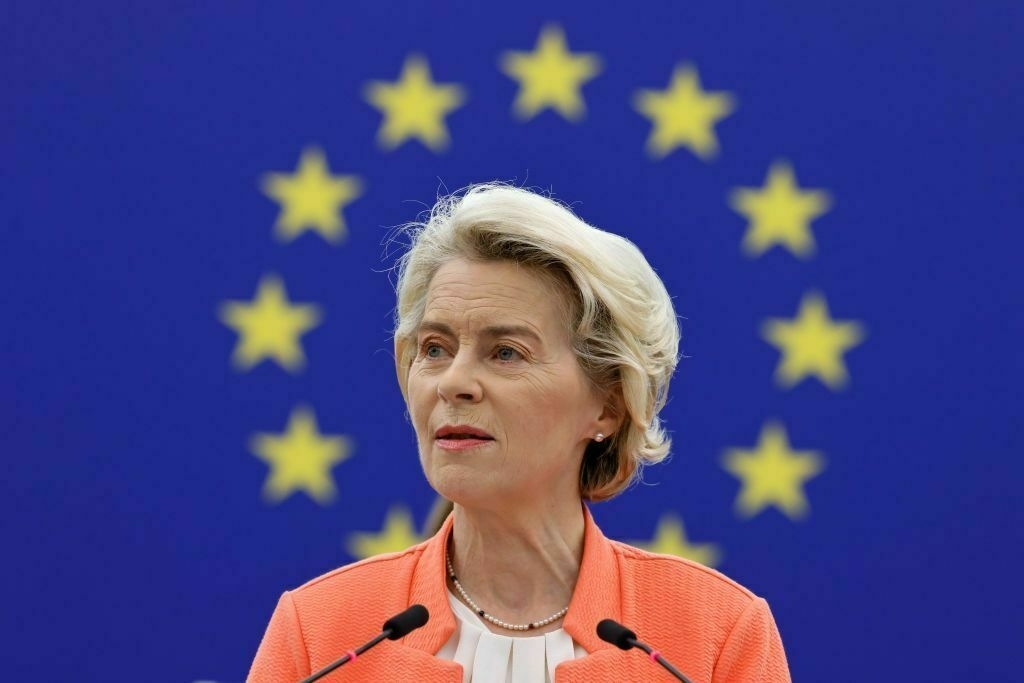
-
Massive Russian drone attack kills 2, injures at least 37 in Kharkiv
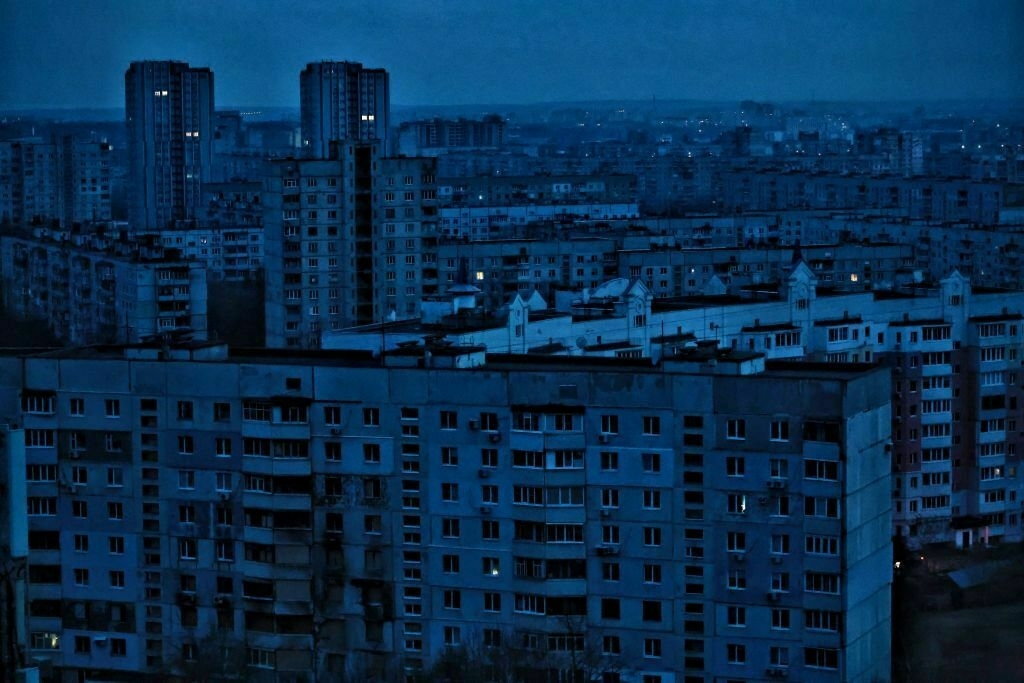
Editor’s Note: This is a developing story and is being updated.
Russia attacked homes and apartment buildings in Kharkiv with drones overnight on June 11, killing at least two people and injuring 37 others, including five children, Mayor Ihor Terekhov reported.
The attack struck a five-story residential building in the city’s Slobidskyi district, leaving 15 apartments in flames, Terekhov said. Several homes in the Osnovyanskyi district were also hit.
At least two people have been killed and 37 have been injured, including five children. The number may rise as authorities search for more victims trapped beneath the rubble.
Earlier in the night, Terekhov warned residents that a “massive enemy drone attack” was targeting Kharkiv. He later reported that Russia carried out 17 drone strikes in the city.
Russia has pounded the city of Kharkiv with relentless aerial attacks in recent days.
A series of attacks with drones, missiles, and KAB guided bombs on June 7 left four dead and around 40 injured, as Russia struck civilian targets in the city throughout the night and again in the afternoon.
President Volodymyr Zelensky condemned the “brutal strike” and urged the U.S. to allow Ukraine to purchase urgently needed air defense systems.
Already a frequent target of Russian strikes due to its proximity to the front lines, Kharkiv has also come under fire during Moscow’s recent record-breaking attacks against cities across Ukraine.
Zelensky said on June 10 that Russia has been steadily increasing the number of weapons it launches at Ukraine in its mass overnight assaults.
-
Russia ships weapons to Africa, violating sanctions, AP reports
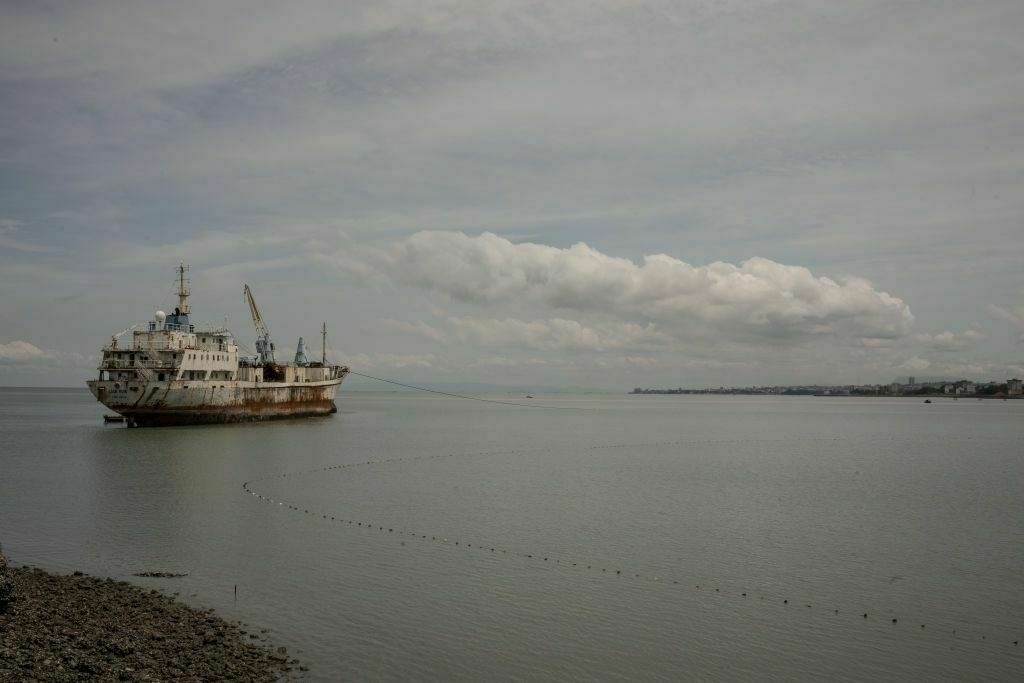
Russia has been shipping weapons to conflict zones in West Africa in violation of international sanctions, the Associated Press (AP) reported on June 10, citing radio signals, satellite images, and military officials.
The deliveries represent another sign of Russia’s expanding military footprint in African nations.
Russian-flagged cargo ships delivered howitzers, radio jammers, and other military equipment to a port in Guinea in late May after a month-long voyage from the Baltic Sea, the AP reported. Other ships made deliveries to the same port in January, carrying armored vehicles and tanks.
Some of the vessels involved in the shipments, including Russia’s Baltic Leader and Patria, are on Western sanctions lists.
The weapons delivered to Guinea were then carried in trucks to neighboring Mali, European military officials told the AP. The outlet analyzed video footage from a Malian blogger to verify the report.
Footage analyzed by the AP identified Russian-made 152 mm artillery guns, small cannons, and a BTR-80 armored troop carrier equipped with radio-jamming devices entering Mali. The delivery also included tanker trucks and semi-inflatable boats, one marked with a painted Russian flag.
US warns ‘serious consequences’ over Russian naval base plans in SudanThe statement marks a sharp departure from the typically measured tone of recent U.S.-Russia exchanges and signals Washington’s concern over Moscow’s expanding military footprint in Africa.The Kyiv IndependentTim Zadorozhnyy
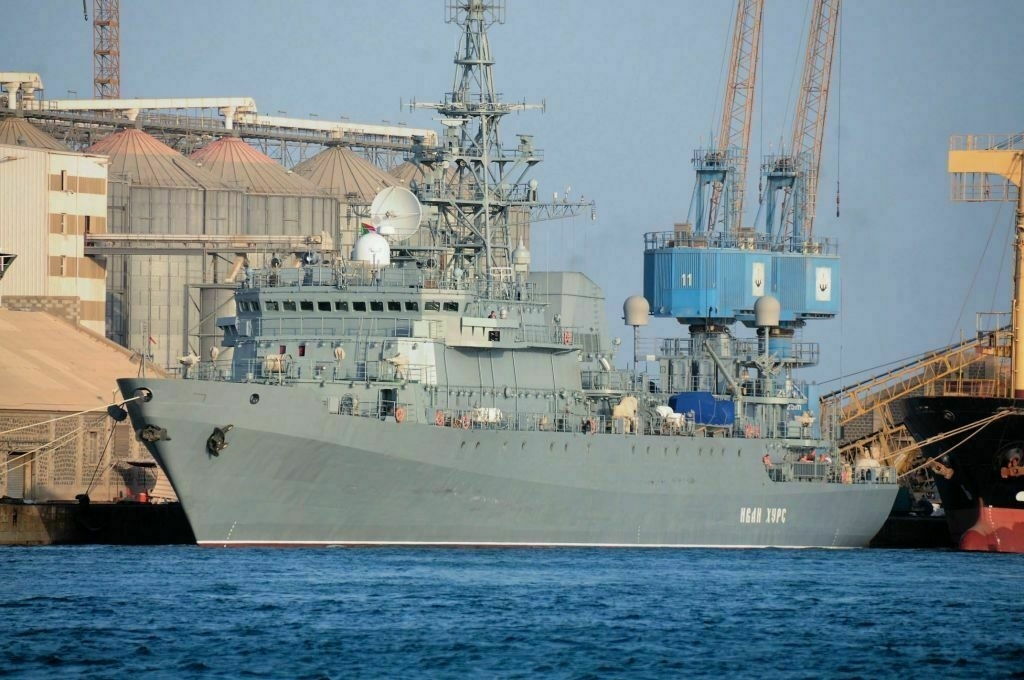
According to military officials, most of the weapons were likely delivered not to the Malian Armed Forces but to Russia’s “Africa Corps,” a paramilitary group controlled by the Russian Defense Ministry. Russian mercenaries, including the notorious Wagner Group, have fought alongside Malian government forces since 2021, in attempts to fend off Islamic insurgents.
The Wagner Group announced its withdrawal from Mali on June 6, but Africa Corps intends to maintain an active presence in the country.
Satellite images from the Bamako air base indicate that Africa Corps also has at least one Su-24 bomber, the AP reported.
Wagner forces in Mali have been sanctioned for alleged war crimes and widespread looting. In December 2024, Human Rights Watch accused Wagner mercenaries and Malian government forces of deliberately killing 32 civilians.
Wagner mercenaries and Malian soldiers have also reportedly suffered heavy losses in their engagements with Tuareg-led rebels.
After a short-lived rebellion against Moscow led by former Wagner Commander Yevgeny Prigozhin in June 2023, Russia sought to tighten its control over operations in Africa — the majority of which were led by Wagner forces.
The influx of Russian weapons into Mali is likely accelerating Africa Corps' rise over Wagner in the region, officials and experts told the AP. The weaponry could also help prevent Russian forces in Africa from suffering the kinds of heavy losses incurred last summer.
In African universities, Russia’s war against Ukraine finds new supportersThe halls of academia have long been considered sanctuaries of critical thinking, intellectual discourse, and the pursuit of truth. Universities across the globe pride themselves on fostering environments where diverse perspectives can be examined, debated, and understood through the lens of scholarly rigor. However, the Russian invasion of Ukraine hasThe Kyiv IndependentNgotho Gichuru
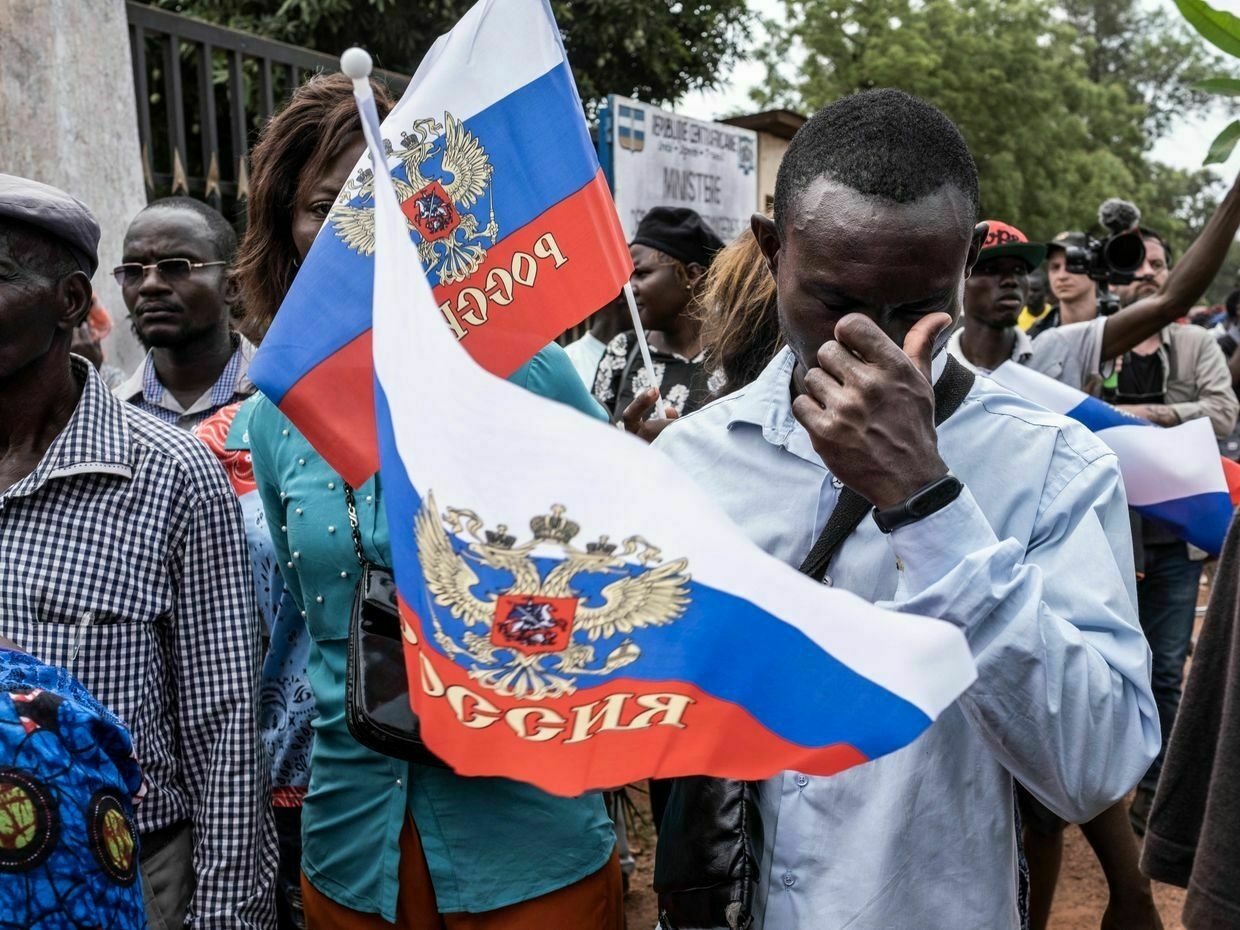
-
Zelensky calls on West to slash Russian oil price cap in half as strikes on Ukraine escalate
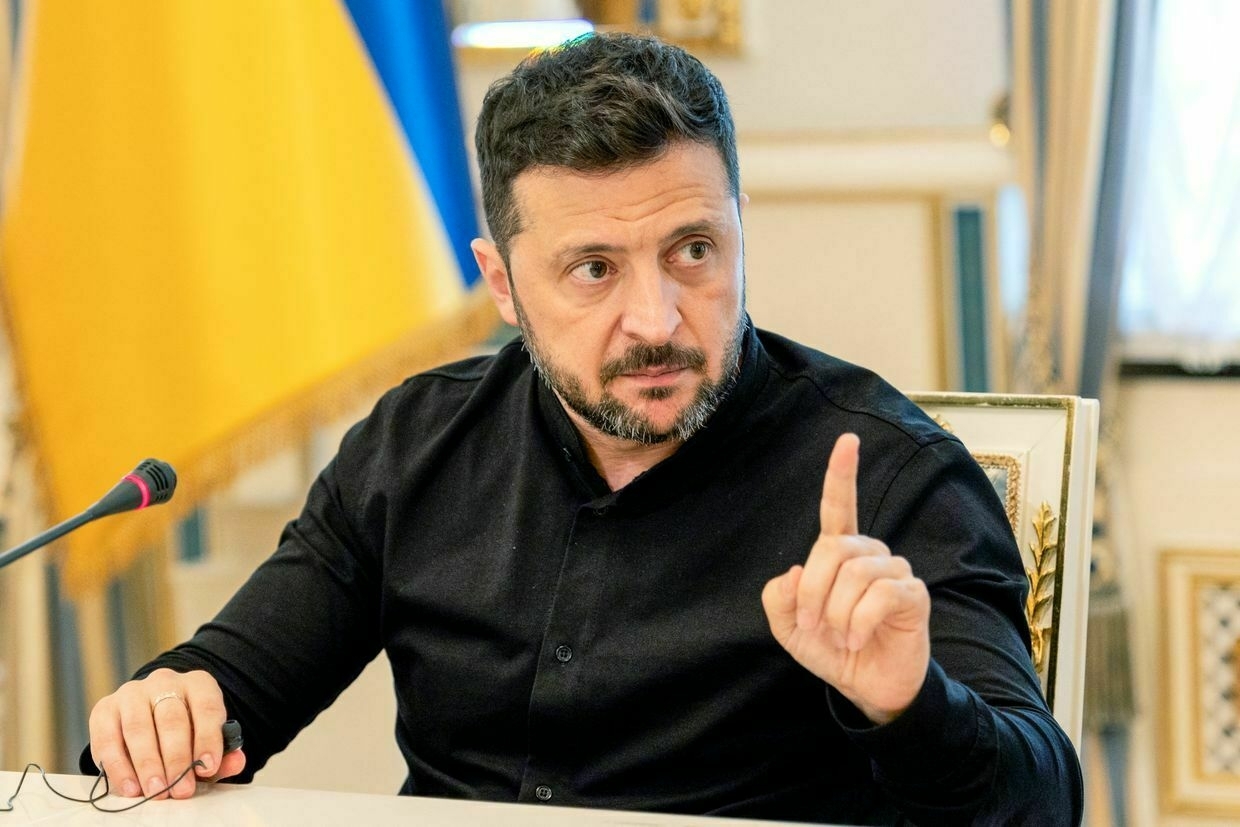
The price cap on Russian oil should be cut from $60 to $30 per barrel in order to pressure Moscow to declare a ceasefire, President Volodymyr Zelensky said in his evening address on June 10.
Zelensky’s comments come after the European Commission unveiled its 18th package of sanctions against Russia, including a proposed reduction in the oil price cap from $60 to $45 per barrel.
The proposed EU sanctions are a step in “the right direction,” Zelensky said, but stronger measures are needed.
“Russia’s ability to continue the war is equal to its ability to sell its oil and bypass financial barriers,” the president said.
“That is why it is necessary … to do everything possible to keep the price of Russian oil lower than they can withstand. Each of the partners knows what price cap is needed — $30, no higher. Such a price level will mean real pressure on Russia – they should be forced to seek peace."
The current price cap on Russian oil was introduced by the Group of Seven (G7) and EU in December 2022 as a mechanism to limit the Kremlin’s ability to finance the full-scale war in Ukraine. The measure bans Western companies from shipping, insuring, or otherwise servicing Russian oil sold above $60 per barrel.
The EU planned to discuss further cuts to the price cap at a G7 summit in May, but the U.S. reportedly blocked the proposal, according to the Financial Times (FT).
EU Commission President Ursula von der Leyen said on June 10 that the amendments to the price cap proposed in the new sanctions package will be discussed at the G7 summit to be held on June 15-17.
Zelensky called the EU’s proposed cap of $45-per-barrel a “compromise price."
“Enough compromises with Russia. Every such compromise is a postponement of peace. We are asking for a real reduction in the price of Russian oil, which would bring us closer to ending the war,” he said.
Russia’s attacks on Ukraine are escalating, Zelensky said, necessitating the urgent need for stronger international pressure and tightened economic restrictions.
“It is vital that there is no silence in response to the Russian escalation, and it is obvious that there is an escalation,” he said.
“Russia has been steadily increasing the number of lethal weapons in strikes for months now."
The president’s comments come after Russia launched one of the largest aerial attacks against Kyiv throughout the full-scale war. The night before, Ukrainian air defense forces shot down 479 Russian drones and missiles in a record-breaking strike.
As Russia inches closer to Dnipropetrovsk Oblast, new Ukrainian region might soon be at warMoscow said its troops had crossed into Dnipropetrovsk Oblast and were conducting offensive operations in the region, a claim Kyiv quickly denied as “Russian disinformation.” Russian troops have been pushing toward Dnipropetrovsk Oblast for months, trying to solidify the southern flank to capture Pokrovsk and the remaining parts of theThe Kyiv IndependentAsami Terajima
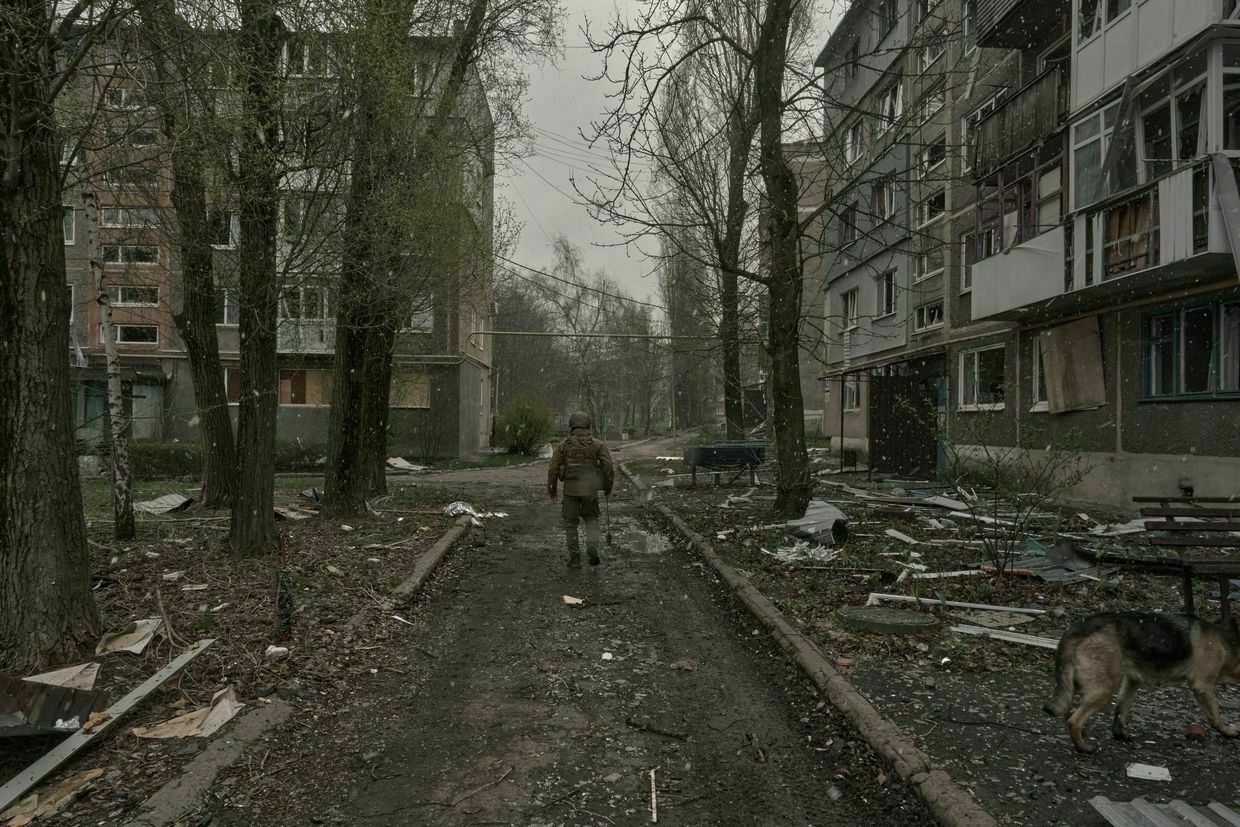
-
The Kyiv Independent launches 603,628 km² T-shirt in response to Russia’s territorial demands

In response to recent peace talks in Istanbul where Russia demanded the surrender of five Ukrainian territories as a prerequisite for a ceasefire, the Kyiv Independent has launched a new product on our e-store: the 603,628 km² T-shirt.
This T-shirt, available in white and black, displays a powerful statement that all of Ukraine’s internationally recognized territory, including the regions of Donetsk, Luhansk, Zaporizhzhia, Kherson, and Crimea, remains an integral part of sovereign Ukraine.
These five regions, home to millions of Ukrainians, have become one of the focal points in the negotiations. Crimea and parts of Donetsk and Luhansk have been occupied by Russian forces since 2014, and the front line now runs through Zaporizhzhia and Kherson.
These regions are, and will always be, Ukraine. Their seizure constitutes a blatant violation of international law.

The 603,628 km² T-shirt, available on the Kyiv Independent store. 
The 603,628 km² T-shirt, available on the Kyiv Independent store. 
The 603,628 km² T-shirt makes clear that 603,628 square kilometers is the only correct size of Ukraine.
All profits from the sales of the 603,628 km² T-shirt for the next month will be donated to East SOS, a Ukrainian charitable foundation that provides comprehensive assistance to Ukrainians in front-line regions and internally displaced people.
By buying the T-shirt, the Kyiv Independent’s readers can make a powerful statement of support for Ukraine and directly help those who have lost their homes.
The Kyiv Independent previously donated $24,500 for the Ukrainian charity Veteran Hub through the sale of over 1,000 “I Stand With Ukraine” T-shirts in March 2025.
Introducing official
merch from the Kyiv Independent -
US to cut military aid to Ukraine, Hegseth says
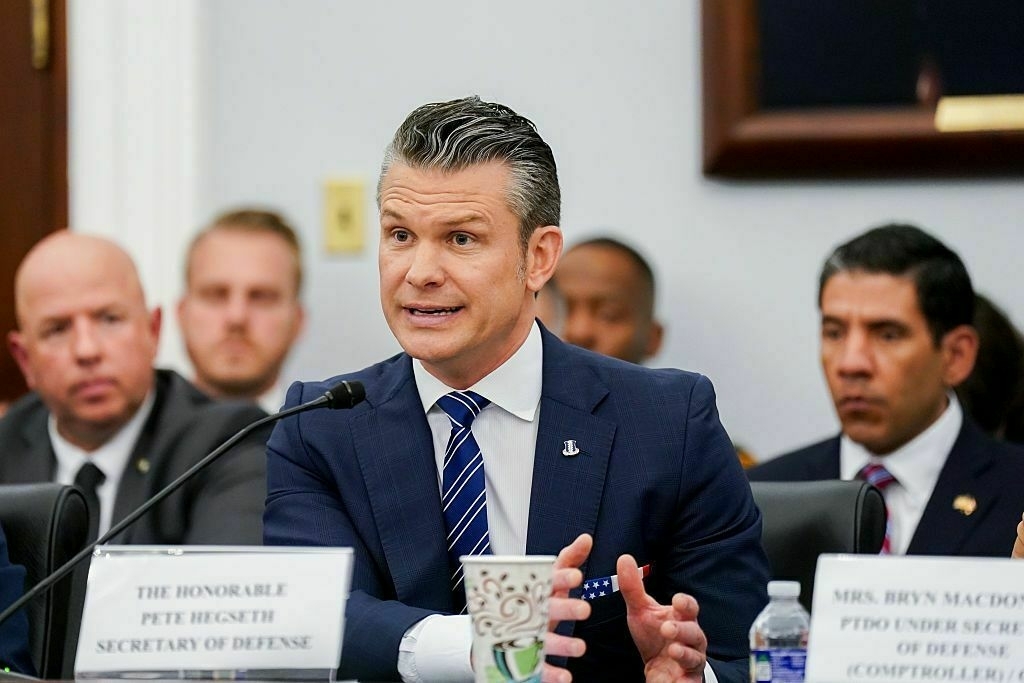
The United States will reduce funding allocated for military assistance to Ukraine in its upcoming defense budget, U.S. Defense Secretary Pete Hegseth said in a congressional hearing on June 10.
“It is a reduction in this budget,” Hegseth told lawmakers in the U.S. House of Representatives.
“This administration takes a very different view of that conflict. We believe that a negotiated peaceful settlement is in the best interest of both parties and our nation’s interests, especially with all the competing interests around the globe."
The Pentagon has not yet released the full documentation regarding its 2026 budget. According to Hegseth, the pending budget “provides a historic level of funding for military readiness, putting (U.S.) warfighters and their needs first."
Hegseth did not disclose details as to the extent of the funding cuts to Ukraine.
The Pentagon’s announcement follows weeks of intense Russian attacks on Ukrainian cities, including record-breaking drone strikes against Kyiv. Amid the escalating aerial assaults, President Volodymyr Zelensky has urged the U.S. to support Ukraine with critical air defense systems.
Ukraine has offered to buy these systems outright rather than requesting military aid.
Since Russia launched its full-scale invasion of Ukraine in February 2022, the U.S. has provided Kyiv with over $66 billion in defense support. But U.S. President Donald Trump halted the approval of new military aid packages to Kyiv when he began his second term in January.
Under Trump’s leadership, Washington’s policy towards Ukraine shifted dramatically. Calls to support Ukraine’s independence and sovereignty have been replaced with demands that Ukraine make a deal with Russia, and Trump has at times lashed out at Zelensky.
After the leaders' infamous clash during an Oval Office meeting in February, the U.S. temporarily suspended all military aid to Ukraine. Hegseth, who ordered the temporary halt, did not attend the most recent Ukraine Defense Contact Group meeting on June 4 — the first such absence by a U.S. defense chief since the beginning of the full-scale invasion.
Zelensky also confirmed in a recent interview that the U.S. diverted 20,000 anti-drone missiles originally intended for Ukraine to American forces in the Middle East.
‘We love our country’ — As Russia steps up its attacks, Kyiv residents choose to staySales manager Victoriia Nikishyna was sheltering with her cat in the stairwell when a Russian drone struck a residential building in Kyiv, leaving several rooms in her apartment without windows. “We’re still holding on. We haven’t fully processed what happened,” Nikishyna told the Kyiv Independent as State EmergencyThe Kyiv IndependentKateryna Denisova
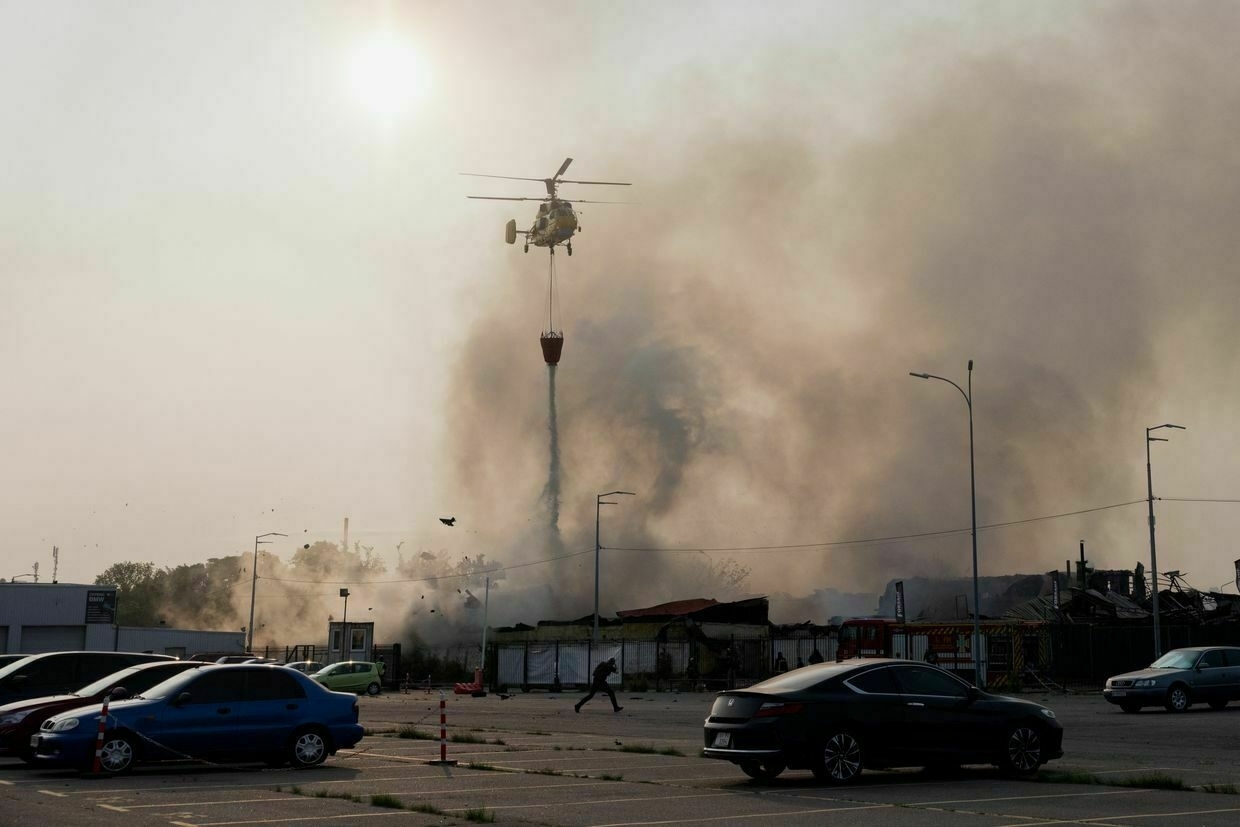
-
Ukraine war latest: Russia carries out one of largest attacks against Kyiv; second group of Ukrainian POWs comes back home under Istanbul deal
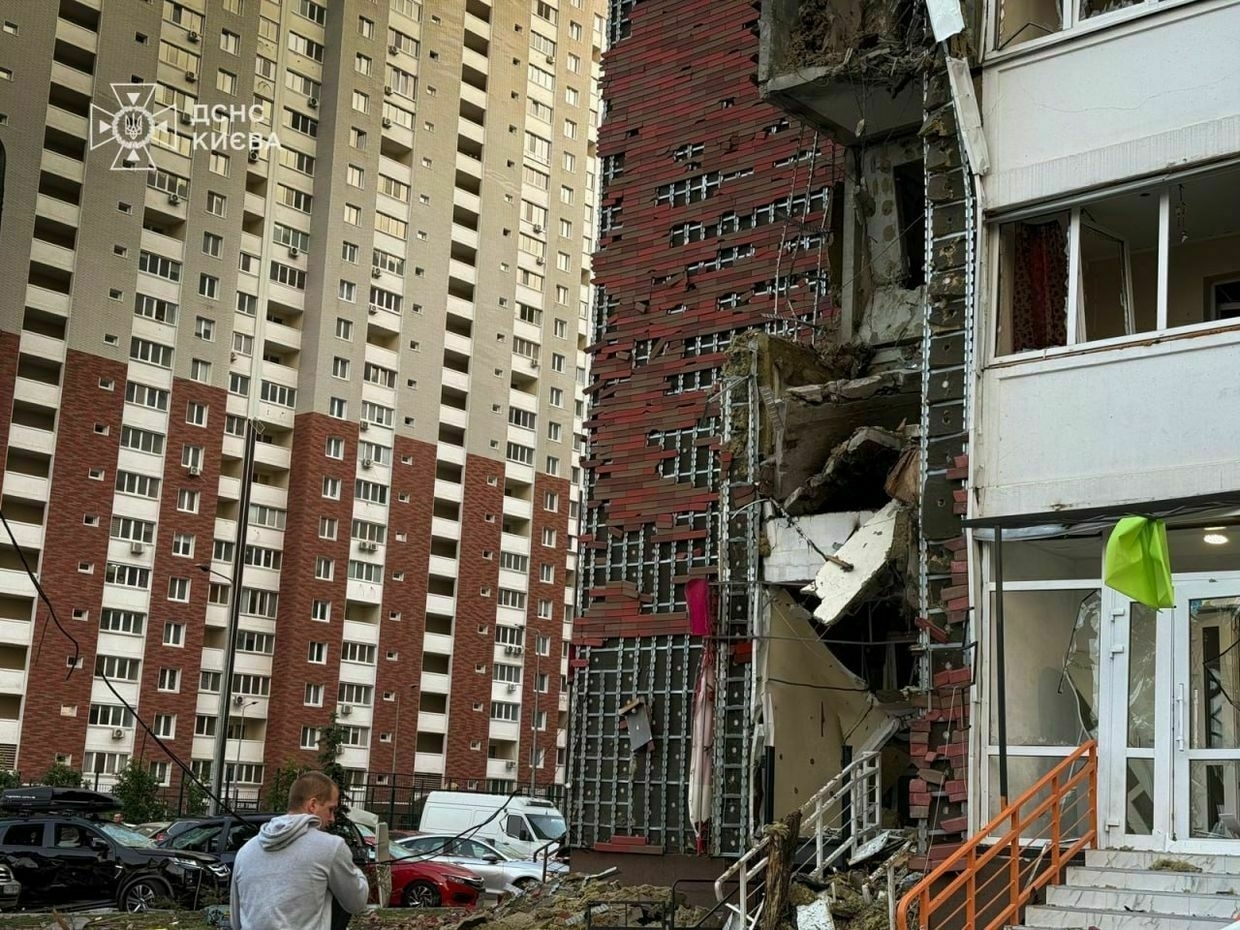
Key developments on June 10:
- In one of largest attacks on Ukraine’s capital, Russian barrage hits Kyiv, Odesa, kills 3, injures 12
- Ukraine, Russia conduct second prisoner swap under Istanbul deal
- Russia significantly improved North Korea’s shoddy KN-23 ballistic missiles, Ukraine’s Budanov says
- EU unveils 18th package of sanctions against Russia, targeting energy, banking, oil
- Over 40% of Ukrainians willing to compromise on ‘de facto’ recognition of Russian occupation for peace, poll shows
Kyiv and Odesa came under another mass Russian attack in the early hours of June 10, involving ballistic missiles and drones.
Russia launched 315 Shahed-type attack drones and decoys against Ukraine overnight, as well as two North Korean KN-23 ballistic missiles and five Iskander-K cruise missiles, primarily targeting Kyiv, the Air Force reported.
Ukrainian air defenses shot down all seven missiles and 213 attack drones. According to the statement, 64 drones disappeared from radars or were intercepted by electronic warfare systems.
A woman was killed and four other people were injured in Kyiv, according to local authorities. Meanwhile, in the southern city of Odesa, two men were killed and at least eight civilians were wounded in the attack. One more person suffered shock during the attack on Odesa, authorities reported.
According to President Volodymyr Zelensky, the attack was one of the largest on Kyiv during the full-scale war.
“Russian missile and Shahed strikes drown out the efforts of the United States and others around the world to force Russia into peace,” he wrote on X.
“For yet another night, instead of a ceasefire, there were massive strikes with Shahed drones, cruise and ballistic missiles."
‘We love our country’ — As Russia steps up its attacks, Kyiv residents choose to staySales manager Victoriia Nikishyna was sheltering with her cat in the stairwell when a Russian drone struck a residential building in Kyiv, leaving several rooms in her apartment without windows. “We’re still holding on. We haven’t fully processed what happened,” Nikishyna told the Kyiv Independent as State EmergencyThe Kyiv IndependentKateryna Denisova
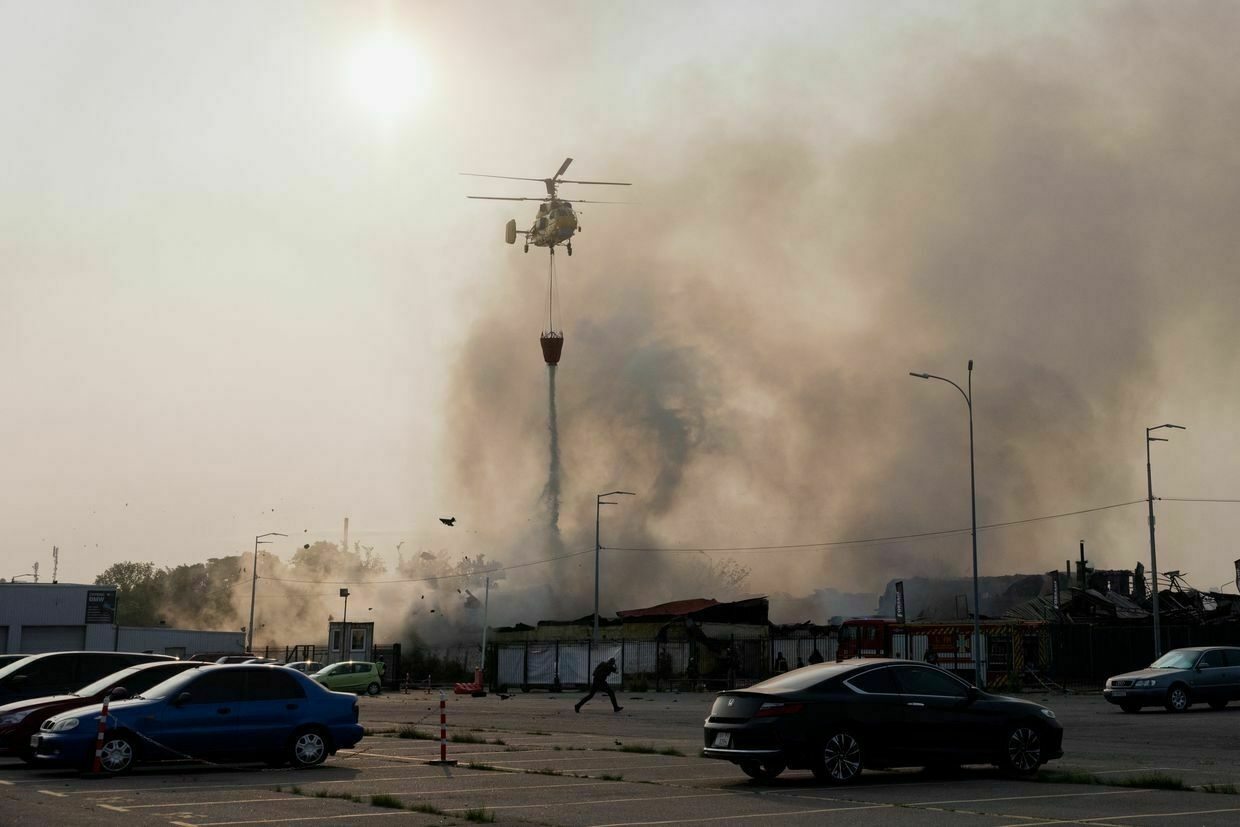
According to Culture Minister Mykola Tochytskyi, the strike also damaged St. Sophia Cathedral in Kyiv. The UNESCO World Heritage site, dating back to the 11th century, is one of Ukraine’s most significant religious and cultural landmarks.
The management of St. Sophia Cathedral has informed UNESCO about the damage caused to the historic site by a recent Russian airstrike, according to the reserve’s general director, Nelia Kukovalska. Speaking to Suspilne, she said that the blast wave damaged the cornice of the cathedral’s central apse.
In Odesa, a film studio and medical facilities, including a maternity hospital, were damaged.
A Russian attack caused damage to a maternity hospital in Odesa. At the time of the attack, 85 adults and 22 children were inside, but no staff or patients were injured as everyone was in the shelter, facility director Iryna Golovatyuk-Yuzefpolskaya told Suspilne.
Ukraine, Russia conduct second prisoner swap under Istanbul dealUkraine and Russia carried out another prisoner exchange on June 10, concluding the second phase of an agreement reached during the most recent round of peace talks in Istanbul, President Volodymyr Zelensky announced.
"We continue the return of our people, as agreed in Istanbul," Zelensky wrote on X, confirming the exchange without immediately disclosing the number of returnees.
"Today marks the first stage of the return of our injured and severely wounded warriors from Russian captivity. All of them require immediate medical attention. This is an important humanitarian act," he added.
The Coordination Headquarters for the Treatment of Prisoners of War said the second group of released prisoners includes personnel from Ukraine's Navy, Ground Forces, National Guard, Unmanned Systems Forces, Air Assault Forces, Border Guard Service, Territorial Defense, and State Special Transport Service.
Ukraine managed to release officers, soldiers, and non-commissioned officers. Among the freed Ukrainian soldiers are those who are seriously ill, as well as those who defended the city of Mariupol in Donetsk Oblast and spent more than three years in captivity.
"All of the defenders released today have severe injuries and serious illnesses: amputated limbs, vision problems, abscesses, infections, trauma, shrapnel wounds, and chronic diseases. Some of the liberated have been diagnosed with hepatitis and tuberculosis," the headquarters' statement read.
The Russian Defense Ministry also said that it had received a second group of Russian prisoners of war who are now in Belarus. Moscow did not disclose the exchange details or the number of returnees.
The swap marks the second stage of the deal negotiated during the June 2 negotiations in Turkey — the second direct peace dialogue between Kyiv and Moscow since 2022.
Russia significantly improved North Korea's shoddy KN-23 ballistic missiles, Ukraine's Budanov saysRussia helped significantly improve North Korea's KN-23 ballistic missiles, also known as Hwasong-11, after receiving the first inaccurate batch from Pyongyang, Kyrylo Budanov, Ukraine's military intelligence (HUR) chief, said in an interview with The War Zone published on June 9.
North Korea has supplied Russia with ammunition, ballistic missiles, and soldiers since the beginning of the full-scale invasion.
KN-23 ballistic missiles initially flew with a deviation of a few kilometers and around half fired at Ukraine by Russia malfunctioned and exploded in mid-air, Reuters reported in May 2024, citing Ukraine's Prosecutor General's Office.
But now they are hitting their targets, Budanov said, without specifying what exactly was changed in the North Korean missiles.
"The KN-23 missiles that were delivered in the very beginning, now it's an absolutely different missile in (terms) of their technical characteristics. The accuracy has increased many times," Budanov said.
"This is the result of the common work of Russian and North Korean specialists. Also, there is the modernization of long-range air-to-air missiles, particular technologies on submarines, and unfortunately, ballistic missiles, which can carry nuclear payloads," he added.
According to Budanov, Russia has also agreed to help North Korea begin domestic production of Shahed-type kamikaze drones.
Pyongyang has ratcheted up its support for Russia following Russian President Vladimir Putin's signing of a mutual defense pact with North Korean leader Kim Jong Un in June 2024.
As Russia inches closer to Dnipropetrovsk Oblast, new Ukrainian region might soon be at warMoscow said its troops had crossed into Dnipropetrovsk Oblast and were conducting offensive operations in the region, a claim Kyiv quickly denied as “Russian disinformation.” Russian troops have been pushing toward Dnipropetrovsk Oblast for months, trying to solidify the southern flank to capture Pokrovsk and the remaining parts of theThe Kyiv IndependentAsami Terajima
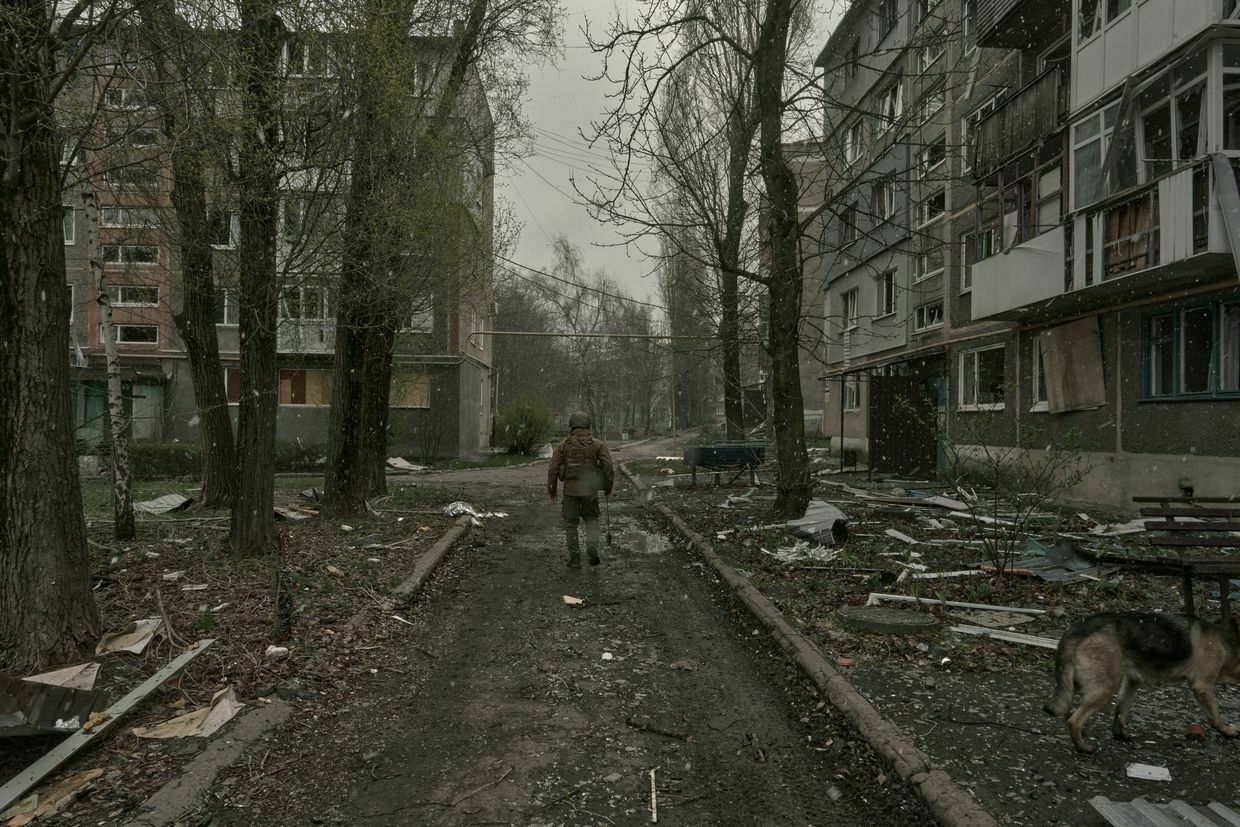
EU unveils 18th package of sanctions against Russia, targeting energy, banking, oilThe 18th package of European Union sanctions against Russia will include additional restrictions on energy, banking, oil, and other areas, European Commission President Ursula von der Leyen announced on June 10.
After the 17th package of sanctions against Russia came into effect on May 20, Ukraine's allies announced that the next package of restrictions was already in the works, after Moscow repeatedly refused to accept a ceasefire.
Russian troops also continue to advance slowly along the front line, approaching Ukraine's Dnipropetrovsk Oblast and moving deeper into Sumy Oblast.
"Russia's goal is not peace," von der Leyen said. "Strength is the only language that Russia will understand."
The EU has proposed for the first time a ban on transactions involving the Nord Stream 1 and Nord Stream 2 pipelines, as well as a reduction in the oil price cap from $60 to $45 per barrel, as one-third of Russia's government revenue still comes from oil exports, according to von der Leyen.
Von der Leyen added that the amendments to the oil price cap are a Group of Seven (G7) coalition measure, so it will be discussed at the G7 summit to be held on June 15-17 in Kananaskis County, located in the western province of Alberta, Canada.
The EU will also add 77 more shadow fleet vessels to comply with the cap to prevent Russia from circumventing sanctions and propose imposing a ban on imports of petroleum products made from Russian oil.
Another part of the sanctions will be aimed at the Russian banking sector, with the EU wanting to add 22 more Russian banks to the list of those who can no longer use the SWIFT international system.
The EU also proposes to extend the ban on transactions to financial operators in third countries that finance trade with Russia, bypassing sanctions, and to impose limitations on the Russian Direct Investment Fund, its subsidiaries, and investment projects.
Further EU restrictive measures will include a ban on exports worth more than 2.5 billion euros ($2.8 billion), which must deprive the Russian economy of critical technologies and industrial goods, von der Leyen said.
Machinery, metals, plastics, and chemicals used as raw materials for industry, as well as dual-use goods involved in the production of weapons and drones, will be affected, according to von der Leyen.
The European Commission President also emphasized that the EU wants its sanctions to be more effective. Thus, the EU would list another 22 Russian and foreign companies, including those from China and Belarus, providing direct or indirect support to Russia's military and industrial complex. These additions will bring the total number of sanctioned companies to over 800.
EU countries will start debating the proposal this week.
Key to Russia’s defeat lies in its economyAs the war in Ukraine grinds on, attention remains fixed on the battlefield. But Russia’s most vulnerable flank is not in the trenches — it’s in the treasury. The West, and especially the United States, holds economic levers that could push Vladimir Putin toward serious negotiations or even collapseThe Kyiv IndependentWojciech Jakóbik
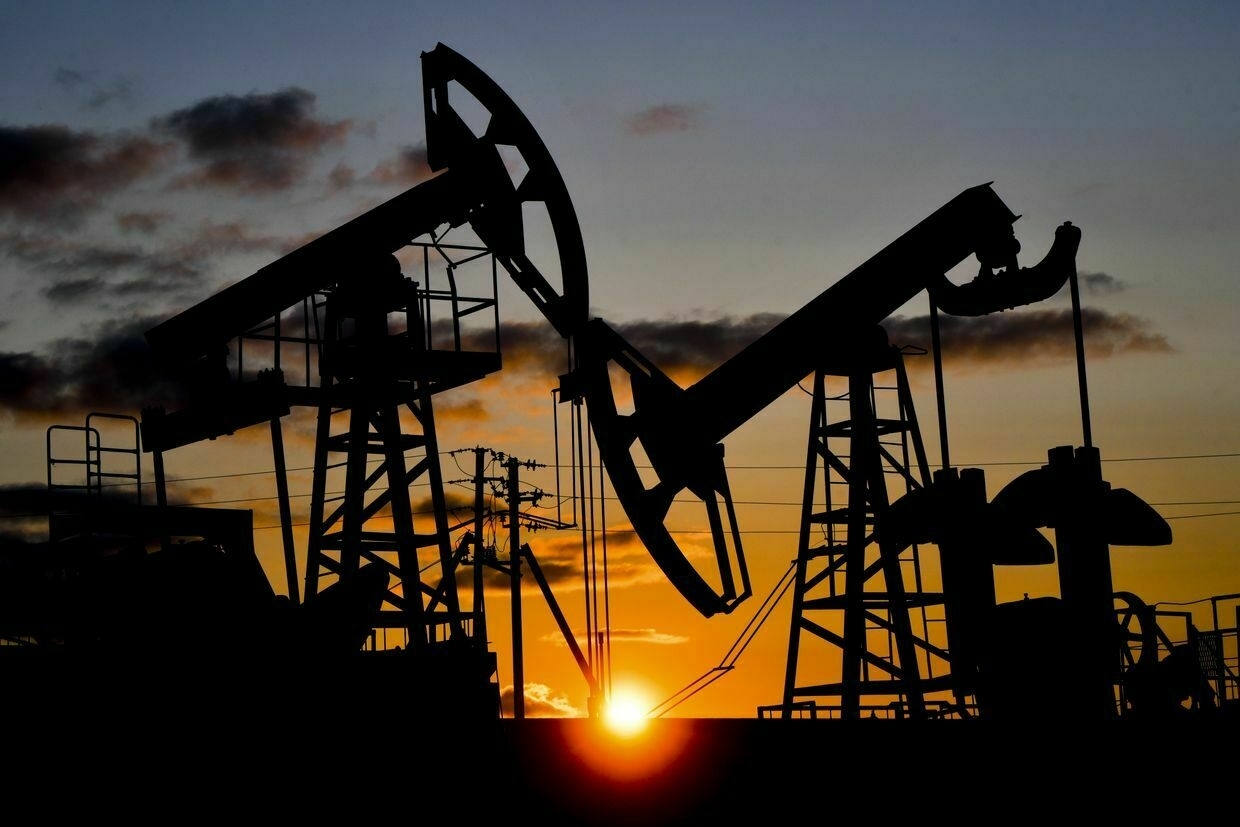
Over 40% of Ukrainians willing to compromise on 'de facto' recognition of Russian occupation for peace, poll showsSome 48% of Ukrainians "categorically" oppose even a de facto recognition of Russian control of the occupied Ukrainian territories to achieve peace, according to a poll by the Kyiv International Institute of Sociology (KIIS) published on June 10.
In turn, 43% of respondents said they would be willing to make the concession to reach a peace deal with Moscow, provided it does not include a formal, or de jure, recognition of the Russian control.
The news comes as Russia continues to push for territorial concessions from Ukraine as part of the ongoing peace talks.
The survey suggests that Ukrainians are even less ready to accept a de jure recognition of the Russian occupation – 68% of respondents said they are categorically against such a step, while 24% were open to it if it leads to peace.
The strongest opposition – 78% – was against handing over control of Ukrainian territories that Russia does not currently occupy. Only 15% of respondents were willing to make that compromise.
Russia currently occupies roughly 20% of Ukraine's territory. This includes the whole of Crimea occupied in 2014 and large parts of the Donetsk, Luhansk, Zaporizhzhia, and Kherson oblasts.
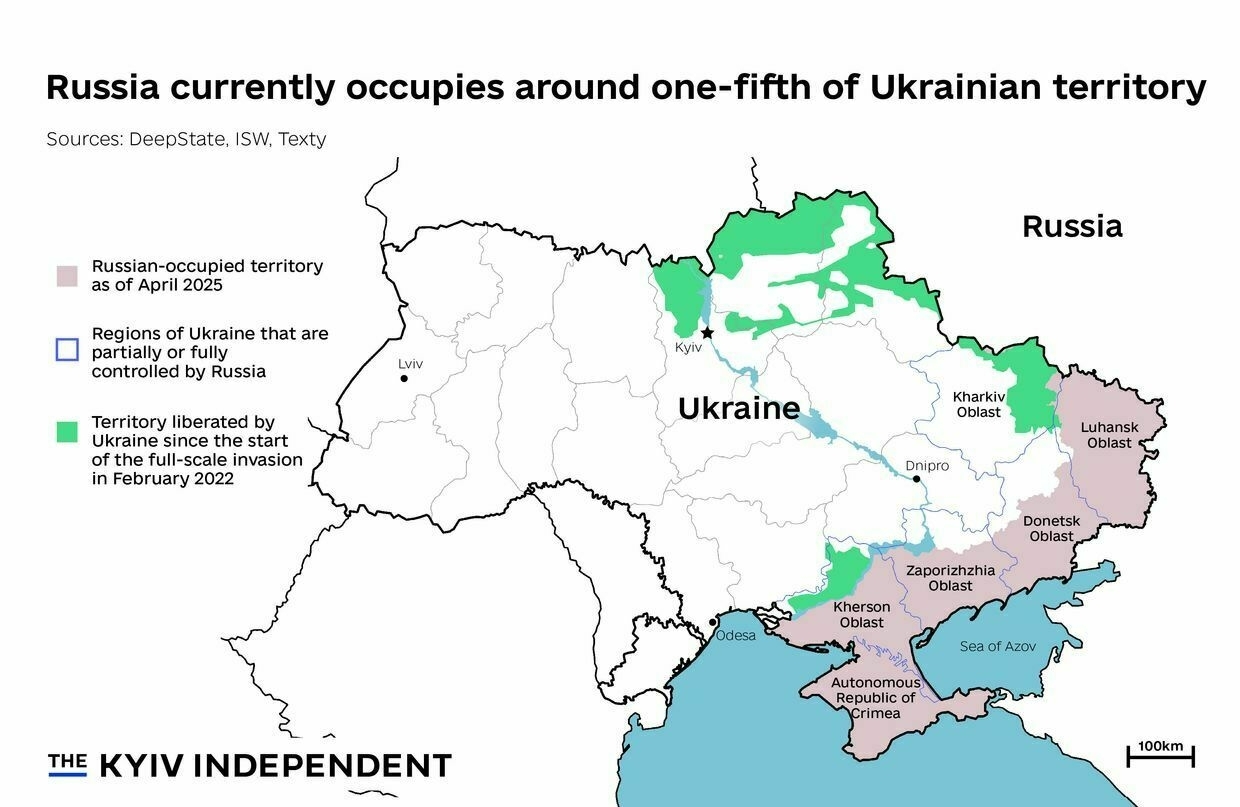
A map showing Russian-occupied parts of Ukraine as of 2025. (The Kyiv Independent) Moscow illegally declared the annexation of the latter four regions in 2022 and insists on Ukraine's full withdrawal from them as part of a peace deal, even though it does not control them completely.
The Kremlin is also pushing for a formal recognition of its hold over Ukrainian territories. While U.S. President Donald Trump has reportedly signalled a willingness to U.S. recognition of the Russian occupation of Crimea, Ukraine has rejected the step, as well as its withdrawal from the territory it currently holds.
The poll revealed that public opinion on territorial concessions has remained relatively stable over the past months.
When asked whether Ukraine should give up territories to achieve peace — without specifying a de facto or de jure recognition of the Russian occupation — 52% said Ukraine should not take the step under "any circumstances."
In comparison, 38% of respondents backed the compromise. These are almost the same figures as in December 2024, when 51% were opposed to the concession, while 38% were open to it.
"Our survey shows that the issue of territorial losses is extremely sensitive for Ukrainians and, in particular, how exactly 'territorial losses' are interpreted plays a significant role," said Anton Hrushetskyi, executive director of KIIS, in a statement.
"At the same time, this means that (un)readiness for territorial losses can become the subject of manipulation and information campaigns against Ukraine."
The poll was conducted between May 15 and June 3. It involved 2,004 adult residents of the Ukrainian-controlled territories who were interviewed by telephone. Only about 500 of them answered all four questions.
Note from the author:
Ukraine War Latest is put together by the Kyiv Independent news desk team, who keep you informed 24 hours a day, seven days a week. If you value our work and want to ensure we have the resources to continue, join the Kyiv Independent community.
-
MASSIVE SHELLING: Ukrainian cities SHAKEN by Russian strikes | NEWS PULSE
